December 23rd, 2013 §
 For three days I’ve been mostly bedridden. During two days of sixty degree weather I didn’t make it out of the front door. What I believe is a virus sidelined me for the weekend and today (Monday) I’m still trying to get strength back. Thankfully I think it’s my immune system making me the target; no one else in the family has gotten it.
For three days I’ve been mostly bedridden. During two days of sixty degree weather I didn’t make it out of the front door. What I believe is a virus sidelined me for the weekend and today (Monday) I’m still trying to get strength back. Thankfully I think it’s my immune system making me the target; no one else in the family has gotten it.
Tomorrow I will go back to Sloan-Kettering for another attempt at a thoracentesis. I have had many people ask more about the process and what it is. This was a very good summary with a graphic. It kind of gives me the willies (does anyone even say “willies” anymore?) to look at that.
When even television seems too much,
And hours go by staring out the window.
I listen to the sounds of my children playing,
I hear life go on without me.
It was a day like this that I wrote the lyrics to the song “Six Minutes,”
A day I wished for the time to go. Just go by faster.
But as on that day,
Today I am aware that these are the days I’m fighting for.
If I didn’t want them I wouldn’t be doing all of this.
I know that this is a tough day. Tomorrow will be one, too.
But I also know that someday, hopefully long from now, it will count as a good day, a great day.
And that realization scares me too.
I spoke with a patient care representative at Sloan about some of the mistakes that were made on Friday. I told her my story and we talked about some ways she could follow up. I told her I wasn’t angry, I know mistakes happen, but I thought there were ways to try to make sure these things didn’t happen again. At the end she gave me her contact information. I said, “I love my doctors and the care I get. But there are always ways to improve. I appreciate the chance to give those suggestions to someone who can do something about them.”
Then I started laughing. “You know, I hope to be calling you with suggestions for many years to come. That will mean I’m still here, trying to help patients get better care and trying to help doctors and nurses provide it.” She started laughing too. “You know, I really like that perspective. I’m not sure I’ve ever heard it put that way. I like thinking about more suggestions as meaning more time.” We thanked each other and hung up.
And I thought about it.
Everything is an equation now.
Everything is a calculation.
Everything has a cost.
I try to balance risks.
I study statistics and results.
But in each equation I calculate, the result is always time.
Nothing is more valuable than time that I am able to enjoy the world and those around me.
July 29th, 2013 §
 A flash of red amidst the green summer grass:
A flash of red amidst the green summer grass:
a lone leaf, blazing in autumn clothing, a vivid premature announcement of a change of season.
Perfectly waxy, thick and juicy, it could not have been there long.
It is, I realize, the color of my mother’s lipstick. The color she has worn every day of my life. Perfectly fitting for the moment…
I turn 44 today.
I do not know how I feel about this fact.
The day I turned 43 was a lifetime ago, surely not just one year. I did not know I had metastatic breast cancer then. I was ignorant and blissful.
I had no idea what my life would be when I reached this birthday.
I have no way to know what it will be when I reach the next. I do believe I will see it though.
I am in limbo at the moment, waiting in the next few weeks to see if my current chemo has stopped working. I do not know if I will need to move on to something else to try to buy myself some time.
That is, you see, my only wish: more time. That is what I wish for today.
Time with my husband. Time with my children. Time with my parents and brother.
Time with my friends.
Chances for memories.
Opportunities for more.
I will keep trying to give a face and a voice to this disease.
There is poetry in the human experience.
I will keep trying to find it, document it, and also help others.
One way I have tried to help is by setting up a research fund at Memorial Sloan-Kettering.
If you can spare a few dollars and want to donate them to research on metastatic breast cancer, you can do so here. I don’t directly ask for donations often, but on this day I will.
I am glad to see 44. But there is inherent sadness in birthdays now.
Cake,
balloons,
the wish that comes true if you just close your eyes and blow out the candles…
if only it were so.
And so there is an anachronistic flash of red,
a moment of color.
I am that leaf,
released from the tree before its time,
floating downward,
coming to rest where it has no earthly business being,
nestled in the green summer grass.
April 2nd, 2013 §
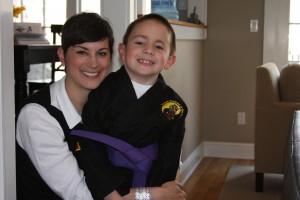 It’s been a wonderful but long few days. I was so run down yesterday that after our egg hunt I got into bed and pretty much didn’t get out for 9 hours. Tristan’s birthday was absolutely delightful. We held a birthday party, something he’s never had before. We’re not big on parties in our family; instead, we always have small family celebrations.
It’s been a wonderful but long few days. I was so run down yesterday that after our egg hunt I got into bed and pretty much didn’t get out for 9 hours. Tristan’s birthday was absolutely delightful. We held a birthday party, something he’s never had before. We’re not big on parties in our family; instead, we always have small family celebrations.
One year, Tristan was at Shriners Hospital for Children on his birthday having hand reconstruction surgery. When the surgeon you want has an opening in his schedule, you don’t say no because it’s your four year-old’s birthday.
When we’ve done parties it’s been my tradition to have a no-presents party. Our children get presents from us and close friends. Party guests, however, are not allowed to bring them (it’s fascinating to me how many people have a difficult time following this rule). Instead, they’re asked to bring the money they would have spent on a gift and donate it to charity (we designate Shriners Hospital for Children). Each party we’ve had in the past has raised at least $500. Paige has had two or three parties through the years, Colin has had two. In those particular years they got the party, cake, and presents from family members. This was more than enough.
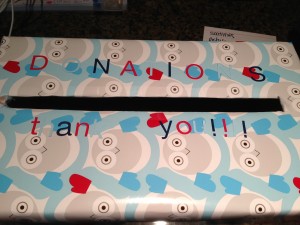 We put a donation box out at the party and everyone can stuff the box. This year Paige wrapped and decorated the shoebox. The children who are bringing the donations also get a lesson in the joy of giving to others. Often the parents tell me that their children don’t understand why they can’t bring a present. That’s okay with me, I think it’s fine to force a discussion about giving to those in need. My children take pride in doing something good, and even when they are young and want to know why guests can’t bring gifts, I feel no guilt in explaining that not all children can afford to pay for the operations they need. When parents say to me, “Oh, I would love to do that but I don’t know how my child would respond,” I never quite understand that. It’s our jobs as parents to be role models, to show our children what’s important.
We put a donation box out at the party and everyone can stuff the box. This year Paige wrapped and decorated the shoebox. The children who are bringing the donations also get a lesson in the joy of giving to others. Often the parents tell me that their children don’t understand why they can’t bring a present. That’s okay with me, I think it’s fine to force a discussion about giving to those in need. My children take pride in doing something good, and even when they are young and want to know why guests can’t bring gifts, I feel no guilt in explaining that not all children can afford to pay for the operations they need. When parents say to me, “Oh, I would love to do that but I don’t know how my child would respond,” I never quite understand that. It’s our jobs as parents to be role models, to show our children what’s important.
When I had my own 40th birthday party a few years ago I did the same thing I have my children do: I asked guests to bring donations to charity in place of a gift. We must be willing to do ourselves what we ask of our children.
Shriners Hospitals provides care regardless of financial situation with an emphasis on orthopaedic care, spinal cord injuries, and burns. Tristan’s complex hand reconstruction helped him tremendously, he was able to have 3 procedures at the same time (a tendon transfer, a z-plasty to widen the web space, and a ligament tightening at the base of his thumb). Should he need cervical fusion surgery for the hemivertebrae and malformations in his neck that is where we will go (I’ve written elsewhere about Tristan’s congenital deformities in his spine and left hand). The team in Philadelphia including Dr. Randal Betz, Dr. Scott Kozin and physician’s assistant extraordinaire Janet Cerrone are very special to us.
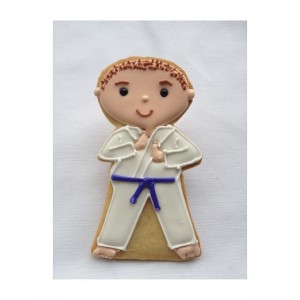 Invitations and stickers from Easton Place Designs and the most adorable cookies from One Tough Cookie helped to make the day special. Tristan loved his karate party, and I love that I’ll be sending a big envelope to Shriners Hospital in Philadelphia from Tristan. I am so grateful to the families who helped to make this birthday so special for Tristan. I thank them on behalf of the children who will benefit from their generosity. Everyone does what’s right for them. This type of birthday celebration is what feels right to me.
Invitations and stickers from Easton Place Designs and the most adorable cookies from One Tough Cookie helped to make the day special. Tristan loved his karate party, and I love that I’ll be sending a big envelope to Shriners Hospital in Philadelphia from Tristan. I am so grateful to the families who helped to make this birthday so special for Tristan. I thank them on behalf of the children who will benefit from their generosity. Everyone does what’s right for them. This type of birthday celebration is what feels right to me.
…………………………………………………….
In case you missed it, Seth Mnookin had a great piece on Slate about the Time magazine cover about cancer. He and I had a great talk about this and I’m quoted briefly in the piece. You can read it here.
** Also, a reminder I’ll be on Doctor Radio (SiriusXM channel 81) this Wednesday, April 3rd at 1 PM EST on the Oncology Show. You can check the schedule here, and it does repeat a few times during the week. I am going to try to get an audio file for those of you interested in listening who won’t have access to it live. The topic? One of the most popular here on the blog: how to talk to people with cancer in a sensitive and caring way.
February 26th, 2013 §
The months and years go by. Like all of you, I mourn the quick passage of time. “Where did the school year go?” I hear my friends asking.
Projects we hoped would be accomplished — tasks we hoped would be done — sit unfinished. Organizing photos, cleaning out a closet or a room, reading that book a friend recommended— many things went undone in the dark and cold months of winter.
Maybe there were emergencies, maybe there were health issues, maybe you just couldn’t get the energy together to accomplish everything you wanted.
Regardless the reason, there can be a bit of disappointment when a season ends.
Growth happens in fits and spurts, not with smooth, sliding grace.
With each phase comes
pain,
discomfort,
unease,
restlessness,
sleeplessness,
yearning.
At the time of my mastectomies my reconstructive surgeon placed tissue expanders in my chest. These were temporary bags of saline that would be slowly filled to stretch out my skin to make room for the silicone implants that would eventually take their place. Each week, like clockwork, I returned to my surgeon’s office. He accessed a port in each expander with a needle, and added saline to each side to make it bigger.
Each time after a “fill” my chest would feel tight. The skin wasn’t big enough for the volume inside, and it would react to the increased pressure by stretching. Until the skin could replicate there was achiness, tightness, a slight ripping or tearing feeling.
A similar sensation happened to me during my pregnancies; the growth happened fast, I got stretch marks. I had visible proof my skin just couldn’t keep up: the growth was too rapid, too harsh, too vigorous.
I often wonder if mothers and fathers get psychological stretch marks when we are asked to accommodate changes we’re not quite ready for.
What can we do? What options do we have? None. We must “go with the flow” and do the best we can. Our children grow and change whether we like it or not.
We do them no favors by trying to protect them, coddle them, and keep them young.
We give them wings to fly when we give them tools to be
confident
and caring
and inquisitive
and trusting
individuals.
I am often moved to tears as I watch my children grow.
I sit in wonder at the succession of infancy, childhood, and adolescence.
I know that as a mother I lack many skills, but I also know that the words I have written in my blogs and essays will one day be a gift to them tooNot a gift to the children that they are, but instead a gift to the adults that I am raising them to be.
Each June as the school year ends I marvel that another academic year has passed.
The growth happens too fast.
The growing pains hurt.
The stretch marks might be invisible, but they are surely there.
January 17th, 2013 §
There is comfort in routine. Some people are superstitious. Sometimes they want the same chemo nurse, the same appointment time, the same chair. “If it’s working don’t mess with it” applies to many things about treating cancer.
I’m always thinking about continuity and the stories that objects tell. I’ve written twice about the tape measure my plastic surgeon used to measure me before surgery. I’ll post those pieces again this month. Whenever I sit in a chair in a doctor’s office I think about all of the people who have sat in it before me.
Each person has a story. So, too, does each chair. Here is one from 2011.
……………………………
Back in 2011 my plastic/reconstructive surgeon asked, “Did you know it’s been four years since your reconstruction surgery?”
Immediately he chuckled, “Of course you know that,” he said, realizing my mental calendar was certainly more precise than his– of course I marked the days off in my head.
Whenever I sit in a waiting room I am instantly transported to that place and time. I sit and watch patients walking in and walking out. I can tell by hearing what the time interval until their next appointment what stage of treatment they are in.
I sit in the chair, the same one I did four years ago.
It’s the same chair, but I am not the same person.
My body is not the same.
There is continuity in that chair.
There is a story it tells me.
I wrote this piece to the next person who sits in that chair.
………………………….
That chair you’re sitting in?
I’ve sat in it too.
In waiting rooms. Chemo rooms. Prep rooms. For tests. Surgeries. Procedures. Inpatient. Outpatient. Emergency visits. Routine visits. Urgent visits. To see generalists. Specialists. Surgeons. Alone. With friends. With family members. As a new patient. Established patient. Good news. Bad news. I’ve left with new scars. Prescriptions. Appointments. Words of wisdom. Theories. Guesses. Opinions. Statistics. Charts. Plans. Tests. Words of assurance. More bloodwork. Nothing new. Nothing gained. Nothing but a bill.
That feeling you’re having?
I’ve had it too.
Shock. Disbelief. Denial. Grief. Anger. Frustration. Numbness. Sadness. Resignation. Confusion. Consternation. Curiosity. Determination. Dread. Anxiety. Guilt. Regret. Loss. Pain. Emptiness. Embarrassment. Shame. Loneliness.
That day you’re dreading?
I’ve dreaded it too.
The first time you speak the words, “I have cancer.” The first time you hear “Mommy has cancer.” The day you wear a pink shirt instead of a white shirt. Anniversary day. Chemo day. Surgery day. PET scan day. Decision day. Baldness day. The day the options run out.
Those reactions you’re getting?
I’ve had them too.
Stares. Questions. Pity. Blank looks. Insensitivity. Jaw-dropping comments. Tears. Avoidance.
Those side effects you dread?
I’ve dreaded them too.
Nausea. Vomiting. Pain. Broken bones. Weakened heart. Baldness. Hair loss. Everywhere. Unrelenting runny nose. Fatigue. Depression. Hot flashes. Insomnia. Night sweats. Migraines. Loss of appetite. Loss of libido. Loss of breasts. Phantom pain. Infection. Fluid accumulation. Bone pain. Neuropathy. Numbness. Joint pain. Taste changes. Weight gain. Weight loss.
That embarrassment you’re feeling?
I’ve felt it too.
Buying a swimsuit. Getting a tight-fitting shirt stuck on my body in the dressing room. Having a child say “You don’t have any eyebrows, do you?” Asking the grocery line folks to “make the bags light, please.” Wearing a scarf. Day after day. Wondering about wearing a wig because it’s windy outside and it might not stay on.
That fear you’re suppressing?
I’ve squelched it too.
Will this kill me? How bad is chemo going to be? How am I going to manage 3 kids and get through it? Will my cancer come back and take me away from my life? Will it make the quality of life I have left so bad I won’t want to be here anymore? Is this pain in my back a recurrence? Do I need to call a doctor? If it comes back would I do any more chemo or is this as much fight as I’ve got in me? What is worse: the disease or the treatment?
That day you’re yearning for?
I’ve celebrated it too.
“Your counts are good” day. “Your x-ray is clear” day. “Now you can go longer between appointments” day. “See you in a year”day. First-sign-of-hair day. First-day-without-covering-your-head day. First taste of food day. First Monday chemo-isn’t-in-the-calendar day. Expanders-out, implants-in day. First walk-without-being-tired day. First game-of-catch-with-the-kids day. First day out for lunch with friends day. First haircut day. “Hey, I went a whole day without thinking about cancer” day. “Someone asked me how I’m doing, I said ‘fine’ and I meant it” day.
That hope you have?
I have it too:
Targeted treatments. Effective treatments.
Ultimately, someday, perhaps: a cure.
Don’t you think that would be amazing?
I think so too.
January 3rd, 2013 §
Today my son Colin turns 11. All of the usual things go along with that: cupcakes, presents, hugs, reminiscing. As I looked back at the pictures of me, pregnant with him, I just can’t believe how the time has gone. Clichés are clichés because they’re true: the years go by faster and faster.
Christmas of 2001 was spent in New York City awaiting Colin’s imminent arrival. I was so huge and uncomfortable that I couldn’t get around too well. I was sure that baby’s head which felt like it was between my knees was going to emerge any second. Christmas came and went. As New Year’s approached I begged my obstetrician to induce me. Colin wasn’t due until January 10th but it was clear he was “fully cooked.” And big.
I called my parents and told them to come to the city. I just knew I wasn’t going to go much longer, and wanted backup so we could go straight to the hospital without worrying about Paige, then 3.
The morning of the 3rd of January Clarke was getting ready for work, staying home slightly later than usual after the holiday. I awakened feeling a bit off. I told him so. He lingered more, wondering if this would be the day. Shortly after 9 a.m. I said the contractions were starting. Only a few minutes apart. We called the garage for our car, but within 20 minutes the contractions were fast and furious. Out the door we went, got a cab, and started the 20 blocks to the hospital. By the time we got there I was in agony. Already a few centimeters dilated for the last 2 weeks, I knew there wouldn’t be much time.
After some (only funny now that it’s over) problems with an IV, a new nurse, and a whole lot of painful yelling on my part, I finally got into a delivery room. The nurses sent Clarke out as they prepped me for the epidural (with all of my yelling, they probably wanted to give me general anesthesia to shut me up… I was not doing well with the contractions). As I bent over for the anesthesiologist to get the epidural in my back, I could feel it… this kid was on his way out, nothing I could do about it. I sat up, yelled, “He’s coming!” as they sort of shook their heads, thinking they had time.
A nurse saw Colin clearly on his way into the world, and ran down the hall for Clarke, who had gone to the pay phone to check voice mail (pre-cell phone days). They both came running in, just as Colin came out. Literally 10 more seconds and Clarke would have missed the birth of his son. I would have loved that epidural.
He takes the cake for my most dramatic birth of the three children. At least after him, they agreed to induce my third, knowing I’d never make it the fifteen miles to the hospital here in Connecticut.
With the fullest head of black hair and 8 pounds, 13 ounces of bulk, Colin looked huge. And old. And that never changed. He was 20 pounds by four months. And always tall.
He was a challenging toddler (that’s code for “pain in the neck”) but grew into a lovely boy. He still is. He’s an athlete and quick learner with zeal for trivia and memorizing facts. He’s a caring and protective big brother and a loving football and ESPN-watching companion for his father.
I never thought I could have a son. I thought I would only do well raising girls. When Colin was born I knew we’d have to figure it out together. I can throw a football with some semblance of a spiral. I am getting used to a child who wants to wear sweatpants most days. Who forgets to lift the toilet seat sometimes. Who takes off dirty clothes and drops them on the floor.
But that boy of mine lights up my heart. His smile is spectacular. His giggle is infectious. He recently decided to grow his hair from the crewcut he’s had since he was a toddler. He’s a big kid, dwarfing most in his grade. His heart and his mind are just as large. I hope he knows just how much we love him, and how proud we are of him. Someday he’ll read this and hear it again. The words I say to him often will be here for him to read whenever he wants.
Happy 11th birthday, Colin. I love you and am so proud of who you are. You are smart and funny and caring and loving. You are a fabulous big brother to Tristan, an adoring younger brother to Paige, and an integral part of this family. Your “sidling” hugs make me laugh every time. You cheer me with your guitar-playing and I love to watch you play tennis. Math is your favorite subject and you have your father’s easygoing disposition. I just adore you. I can’t wait to see what you are going to do with your charming self when you grow up. You make my heart soar.
You made quite an entrance into this world. I hope you similarly make the world take notice as you grow.
November 21st, 2012 §
I load the dishwasher, put in a load of laundry and buy Colin a new white dress shirt
Because I can.
I walk the two blocks between the doctor’s office and the drugstore on a crisp autumn day
Because I can.
I give my children an extra hug, just one more kiss, an additional “I love you” before the bus
Because I can.
But still I worry about today, tomorrow, and the next day.
How can I not?
I put makeup on yesterday.
I can tell it puts people at ease.
If I look “healthy” then they can relax.
If I don’t look sick they won’t have to worry how to act or what to say.
They tell me “You’d never know to look at you. You’d never know you have cancer. You’d never know you’re sick.”
Some moments that’s true. Some moments I feel good. Some days, in fact. And I treasure those.
Some days it’s a lie. It’s not how I feel.
I know it’s a compliment. I take it as such.
The phlebotomist asked me at my oncology appointment yesterday if I’m ready for Thanksgiving.
I wasn’t sure whether to cry or laugh.
Ready?
I don’t know.
Giving thanks. That’s a loaded phrase.
I am grateful I have some time. I am thankful for the kindness that gets shown to me every day by my family and friends.
I appreciate every person who tells me they are lifted by my words, learn from them, say they express something they have felt or even just wondered about.
For every email I get of support,
Every offer of help,
Every playdate,
Every Facebook post, photo, comment
I give thanks.
But cancer sucks. This diagnosis is my nightmare.
But I also know that tragedies happen to people every single day. A life can be lost without warning. I have learned of two sudden deaths of friends’ loved ones this week and I see the pain those losses have caused. I learned it for myself when my mother-in-law died. She did not have time to say her goodbyes.
I don’t like that my life revolves around this disease right now. I try to keep my life focused on others as much as I can. I try to check in on friends who have their own troubles. I try to keep up with the kids. I try to be a good wife and keep the house running. I wish I could be a better wife right now. I try to be strong. I try to suffer on my own time. I try at these things but don’t always accomplish them.
It’s an isolating predicament. Few can know the anguish, the daily trials, all of the parts of my life which don’t get shared with anyone. I share some here, of course, and with friends, but much of it is my own. For now, this is how it needs to be while I continue to process and try to make sense of this new chapter.
Thanks to you all.
…………………….
I was honored to be featured in this blogpost from the American Cancer Society titled “Cancer survivors are truly remarkable people” which focused on the post I wrote in the days after my diagnosis giving tips on how to talk to children about stage IV cancer.
……………………..
Many have asked about the fractures on my left side. The one that is painful is the one in a rib up near my collarbone. That will probably take two months to heal. It is a fracture caused by cancer in that bone. The cancer must shrink first. Only then can the bone heal. So it will be a slow process.
I start round 4 of chemo tomorrow, on Thanksgiving night. Same full strength dose because I was able to tolerate the last round again. Same regimen: 7 days on, 7 days off.
November 17th, 2012 §
Of course memories and legacies are on my mind all the time now. I can say for sure that I won’t be remembered for my cooking. I might be remembered for my lack thereof, however! One thing I make well is a citrus cheesecake. I’m quite sure Clarke married me for this dessert. I’ll share it here someday soon.
I miss Barbara, my mother-in-law, every day. It’s been three years since her death in a car crash. I wrote a post about Thanksgiving two years ago and referred to one of Barbara’s traditions– a delectable treat called cranberry ice. So many people asked about it that I posted the recipe. I thought I’d share it here again because I know some people have already made it part of their own holiday traditions. I think that’s just lovely. I’m reposting the information here in case you want to give it a try:
……………………………………………
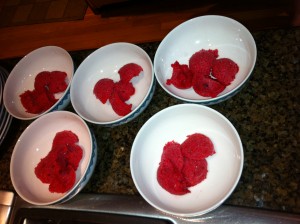
The way we serve cranberry ice is as a side dish, in place of cranberry sauce. The tart, sweet, cool flavor is delightful.
I like to make a double recipe so there are leftovers… I am giving the instructions for that; if you want to halve it, you may. Because you need to beat it with a mixer as it freezes, don’t make it late at night.
You will need:
2 bags of fresh cranberries
2 packets Knox gelatin
Lemon juice
2 cups of sugar
2 cups of water
Freezer-safe bowl and a food mill, ricer, or strainer
Directions:
Boil the cranberries fully until the skins fully split. Drain the cranberries and run them through a ricer, food mill, or strainer to remove the skins. (I use a food mill that Barbara gave me. It has a hand crank on the top and you turn it around and around and the skinned cranberry puree drops out the bottom. A more updated version is here). Once you have all of the cranberry puree in a freezer-safe bowl, set aside. Take the 2 packets of gelatin and dissolve in 2 cups of water. Add this to the cranberries. Add about 2 cups of sugar (less if you like it very tart). Then add a bit of lemon juice to taste.
Take the bowl and put it in the freezer. As it freezes, take it out a few times (2-3) and beat with electric beaters for about 30 seconds to fluff it up. This will keep the texture airier. If you don’t do this, the consistency will be far too dense and hard. Once frozen, serve with your meal using an ice cream scoop. It doesn’t melt immediately because of the gelatin. Barbara always served in lovely cut-glass footed bowls. I haven’t found ones I like yet, so mine was served in regular bowls today.
October 24th, 2012 §
To my dearest children,
Someday you will understand the depth of my love for you. Perhaps it might take until you are adults, perhaps made more vivid if you are fortunate enough to have children of your own. No matter when, no matter how, I hope you will someday learn this powerful emotion I feel for you. You give me strength. You make me fight. You give me joy. You make my heart swell with pride.
I want to see it all. I want to see every day. I want to know every phase of your lives.
You see, I am a quitter.
I know, those of you who know me are probably chuckling and saying, “Yeah, right.”
It’s true.
There are very few things I’ve finished that I have started. I think I was always afraid of not doing something well. I would start and quit… or just not start at all.
But let that be a lesson: there is no such thing as perfect. Try. Fail. It’s okay. Take a chance. You have no idea where it might lead.
Hard work doesn’t always pay off. People don’t always get what they deserve. That’s just the way it goes.
I didn’t finish my Ph.D.
I never wrote a book.
But my darlings, let me tell you something I take pride in: you. Parenthood is a lifelong commitment. There is no backing out, changing your mind, saying “it’s too much.”
There is one job I’m good at and it’s being your mom (I’m a pretty good wife but I do tend to nag even though it’s for your dad’s own good). Your flaws and your talents make my heart soar in equal measure… they are what make you you. You are each so different, so unbelievably deliciously divine in your own way. Never doubt that my heart bursts every time I look at each of you. I’m pouring every ounce of love into you that I can. I’m going to just keep doing it every day.
Being your mom is the best thing there is.
June 18th, 2012 §
The last month has been busy with good things.
Somehow I’ve wanted to tuck these things away, commit them to memory, etch them in my mind so that I might remember. I’ve been taking loads of pictures and rather than writing, photography has been my way of documenting these times. I find myself taking photographs more and more each week, and getting a lot of joy from doing so. I post many of them on Instagram for those of you who might be interested (username: adamslisa).
Paige graduated from eighth grade this week. The fact that my firstborn is starting high school in the fall is mindblowing.
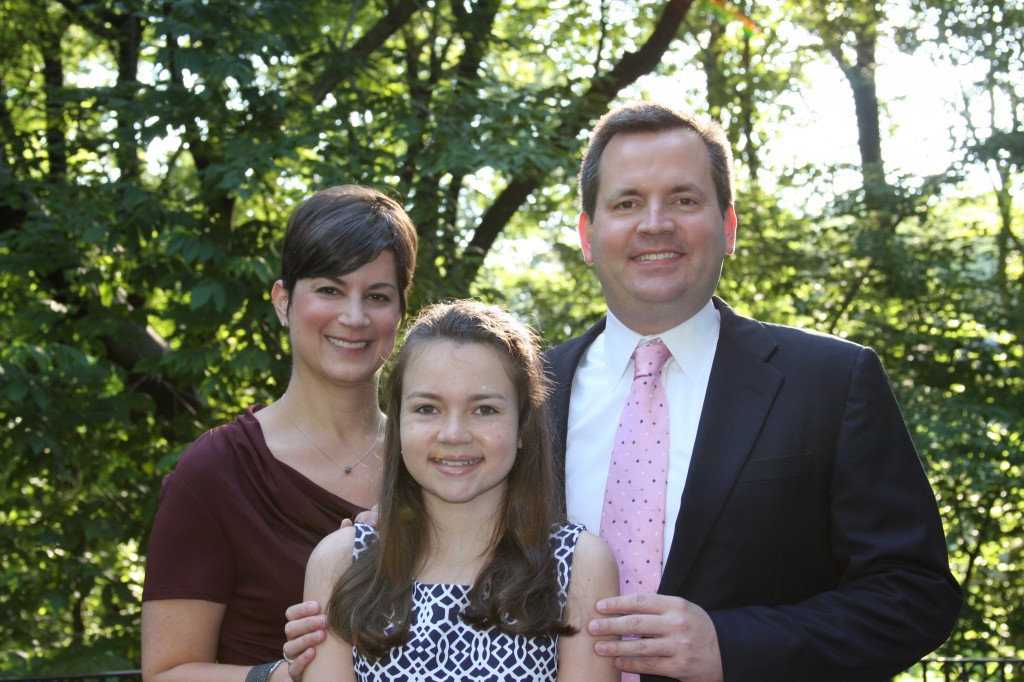
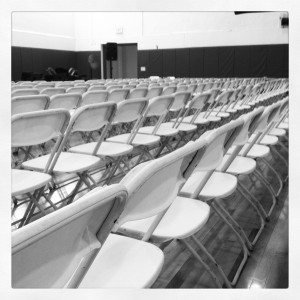
Colin finished 4th grade, made the All-Star baseball team (they lost the game) and then had his Little League Minors team win the Championship today (a happier boy could not be found). He pitched the first 3 innings of the game today and I’ve enjoyed this season immensely. What a great group of boys and coaches on the team this year. I love that he still waves to me when he is playing right field and still will yell, “Hi Mom!” as he runs by. I love that he still hugs me at the bus stop and tells me he loves me many times each and every day, without hesitation.
These things matter. They may change. They probably will. But for now, I treasure them.
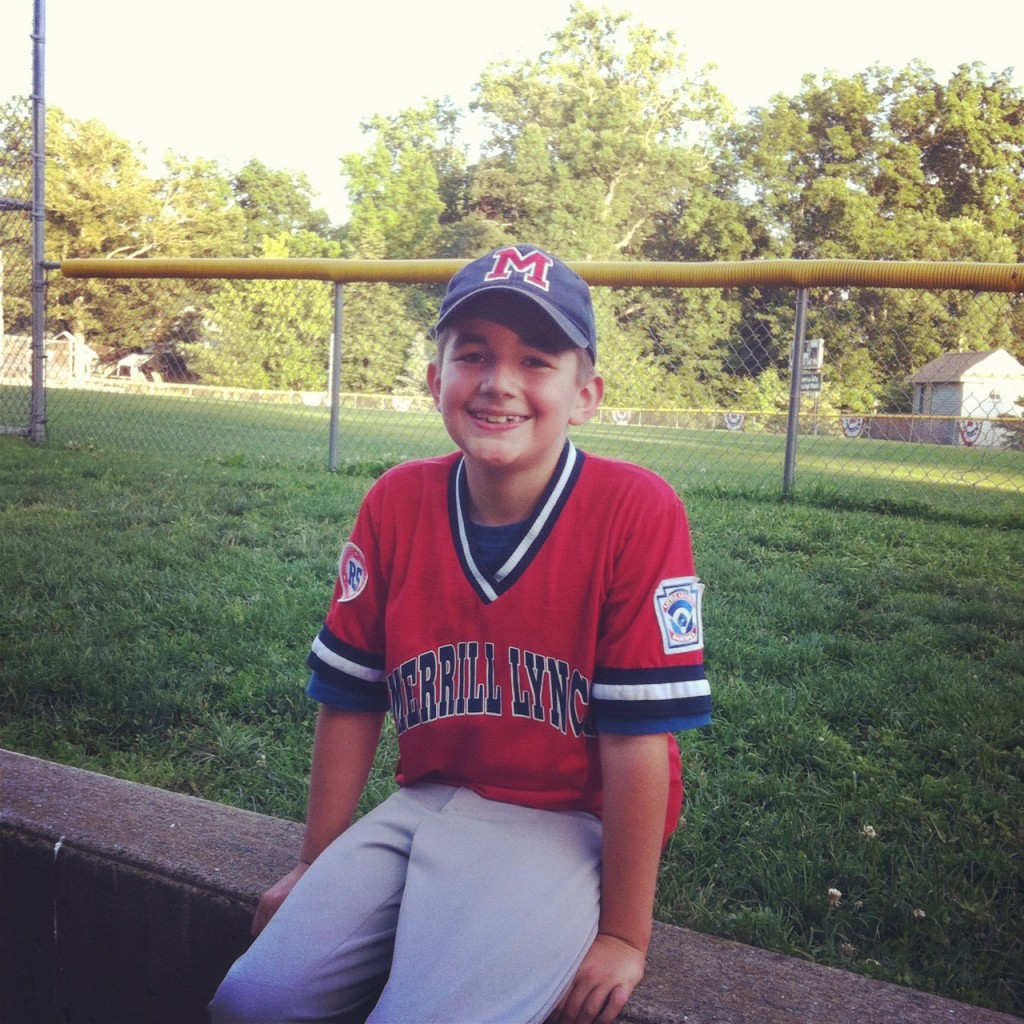
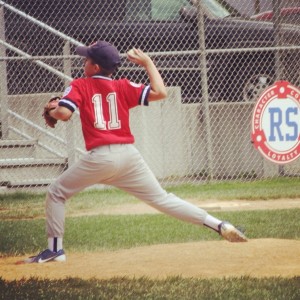
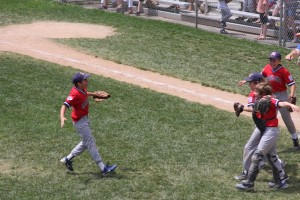
Tristan and Paige had a piano recital yesterday and Tristan got his first trophy. On Tuesday we will take him to Philadelphia to see his orthopedic team at Shriners Hospital for a checkup. He is bubbling with excitement at being a first grader now…
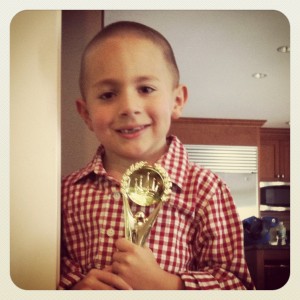
June 18 is a significant date. It was 5 years ago today that I had my last chemo treatment.
Five years isn’t meaningful in terms of my disease. It doesn’t mean I’m “cured.” My kind of breast cancer can return after seven years, or twelve, or fifteen. But it’s still five years so far that I have had no evidence of a recurrence. Five years of memories. Five years that matter.
These last few weeks have been magical to me.
These were the days I fought for.
These were the days I wanted.
These are the days I longed to share with my husband and my children. And I am doing just that.
I’ve been overwhelmed with emotions in these weeks, seeing my children change and being so proud of not only what they do, but also who they are.
I think when it comes down to it I haven’t been writing this month because I needed to hold all of this inside. I needed to let it sink in. I needed to steep in the glory that these simple days hold.
Being alive to share these days with my friends and family.
Helping others who are undergoing treatment and surgery.
My days are full and I do not take them for granted.
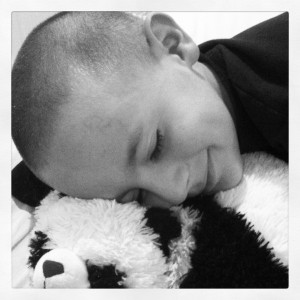
May 4th, 2012 §
Regrets are most often over things we have not done, rather than things we have.
Inaction, it seems, is harder to tolerate than action.
Doing something, even if it’s ultimately a mistake, is better than doing nothing.
I’m constantly torn between taking chances and staying nestled in the warm comfort of habit. I am a lover of routine, constancy, predictability. One of the many reasons I fell in love with my husband is his admirable and enduring sense of calm. I am more hot-headed, far quicker to be annoyed, get frustrated, to yell. I strive to be more like him in his ability to go with the flow, but most often I fail miserably.
I’m not a risk-taker. I tend to over-think things. If there is something unpleasant that needs to be done, I do it immediately so I can move on. If I were still a child I would eat the green vegetables first so I could enjoy the rest of the meal.
Making drastic changes often doesn’t work. I’ve been trying to branch out in a few ways over the past few months and I’m happier for it. I’ve started doing Pilates weekly, sometimes twice a week, and I’m loving it. I am physically stronger, have a teacher I adore, and many weeks get to take the lesson as a duet (semi-private) with a dear friend.
I’ve been taking lots of photos and enjoying not only the images I’m capturing, but also the social element of sharing them on Instagram. I enjoy seeing the slivers of beauty that are around us every day and am taking time to appreciate them more.
I’m taking more chances with my writing. I’ve been privately writing about a wider variety of topics, and trying out longer-form work. I recently read a story I wrote out loud to a group for the first time.
I curse middle age a few times a day, mostly about my body and how things just don’t work like they used to. But the perspective I have through my life experiences, the wisdom that I have after 42 years of ups and downs, the confidence to say, “I am flawed, I will try to be better, but I also know who I am” are all valuable.
I enjoy having others in my life but also know that when it comes time to take a chance, I can wrap my arms around myself and jump.
April 21st, 2012 §
On our last day in Jamaica it started pouring in the late afternoon. I snapped this shot and it’s one of my favorites from the week. The kids and Clarke were still in the pool and I was standing on the balcony above.
I will hang this in my office to remind me that clouds and rain may come quickly, but the sun will always return, even if it takes a little while.

April 20th, 2012 §
The other night, in 140 character tweets, I made some comments about my past few days on vacation in Jamaica. I noticed that two tweets especially received lots of replies and lots of “favorited” status.
Two simple sentences that captured so much of what I’ve been thinking about this week.
The tweets read:
Folks, these were the days I fought for during chemo. This time is my reward. These days with my family are priceless.
It doesn’t mean I don’t complain, or have bad days, or get frustrated with my kids. Life isn’t perfect. But I try to appreciate all I can.

breakfast

the simple geometry of a beach umbrella

open door policy

pool steps
I took many photos this week which you can see now on Instagram (my username there is AdamsLisa). I’ll be posting my favorites here occasionally in the weeks ahead, and probably next winter when we all are craving some views of sunshine and palm trees.
I am grateful to Clarke for working hard each day to pay for the trip, to my children for being the individuals they are who make me smile, laugh, and go to the computer to Google answers to endless questions. I always appreciate their hugs and kisses and sense of wonder and enthusiasm for life. I know these days with them are fleeting.
Life is fragile. I know it.
I am treasuring these last hours here in Paradise.
November 20th, 2011 §
Last week Darien was lucky enough to have the Fabulous Beekman Boys (Dr. Brent Ridge and Josh Kilmer-Purcell) come to do a book signing at the Darien Library. My friend Aimee did a great blog post with more pictures on her own site but I wanted to share the picture she took of the three of us.
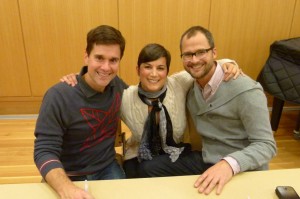
I love the photo! Brent and Josh have a farm in Sharon Springs, NY and their business is based there too. When they found and fell in love with the historic hotel/farm, the two men rearranged their lives to make their dream of owning a working farm come true. Brent left his medical practice in geriatrics to be at the farm full-time. Josh divides his time between the farm and working in advertisting and an author. They also had a TV show on Planet Green for a few seasons which chronicled their time getting the farm established. It’s wonderful and I always enjoyed watching it.
Josh has written two memoirs I Am Not Myself These Days (which is about his life as a drag queen) and the book about their farm, The Bucolic Plague. They have a new cookbook (The Beekman 1802 Heirloom Cookbook) which I love because the recipes are very simple and take advantage of foods that are in season. Every detail of the book is beautiful from the sewn pages to the cover which is designed to look like cheese cloth (their handmade cheese called Blaak is a favorite of mine. They make it in limited edition each year; its black ash rind is beautiful).
Josh and Brent were warm, entertaining, and funny… just as I thought (hoped) they would be. They are very involved with their fans on Twitter and Facebook and work very hard not only at the farm but also now on tour. Josh had just gotten off the train in Darien after a full day of work at his office in the city. They are tireless advocates for small town businesses and the craftspeople who make fine wares.
You can find them at www.beekman1802.com
here is a link to Aimee’s post about the evening: The Fabulous Beekman Boys
September 27th, 2011 §
September 29, 2010
Most of you probably read the title of this post and thought I was going to write about the guilt we may feel as parents over the course of our children’s lives when we can’t be there for every event they want us to attend or say no to things we know they might want to do.
But that’s not what I mean by “Mommy guilt.” Instead, it’s the feeling I have today because my mother is coming to visit.
I feel guilty because I have a mother who’s alive and many people I know do not.
I commented on Twitter this morning that my mother was coming for a few days. Author and friend Katie Rosman tweeted back “jealous.” Katie and I actually met because of the moving book she wrote about her own mother’s death five years ago, If You Knew Suzy. I wrote a blogpost about that book; in it I shared personal feelings about having cancer and what my legacy might be for my children.
But there was more.
Katie’s mom is dead. So is my husband’s mother. So are the mothers of many of my friends. And as I go through middle age this will happen more and more. And someday it will happen to me.
Every time I drive the fifteen minutes to the Amtrak station to pick Mom up (when she and my father don’t arrive by car here together) I think about the night I drove to get her at the train station the first time she came to visit after Barbara died.
When I saw my mother step off the train that night last year I almost had to look the other way: it was like looking at the sun.
The sight of her was
so bright,
so intense,
so welcome,
so wonderful,
that I almost had to look away for a moment.
The guilt over being able to see her step off that train and into my arms again overwhelmed me.
And so, today, when I see her again, I will hold her, kiss her, hug her. I’ll hug her for an extra moment and think to myself: this is for all of you. This is for all of you who have lost your moms and can’t do this simple act anymore. A way I can honor her and you is to appreciate these times we have together because I know there are so many who would give anything to have one of these moments with their mom again.
September 6th, 2011 §
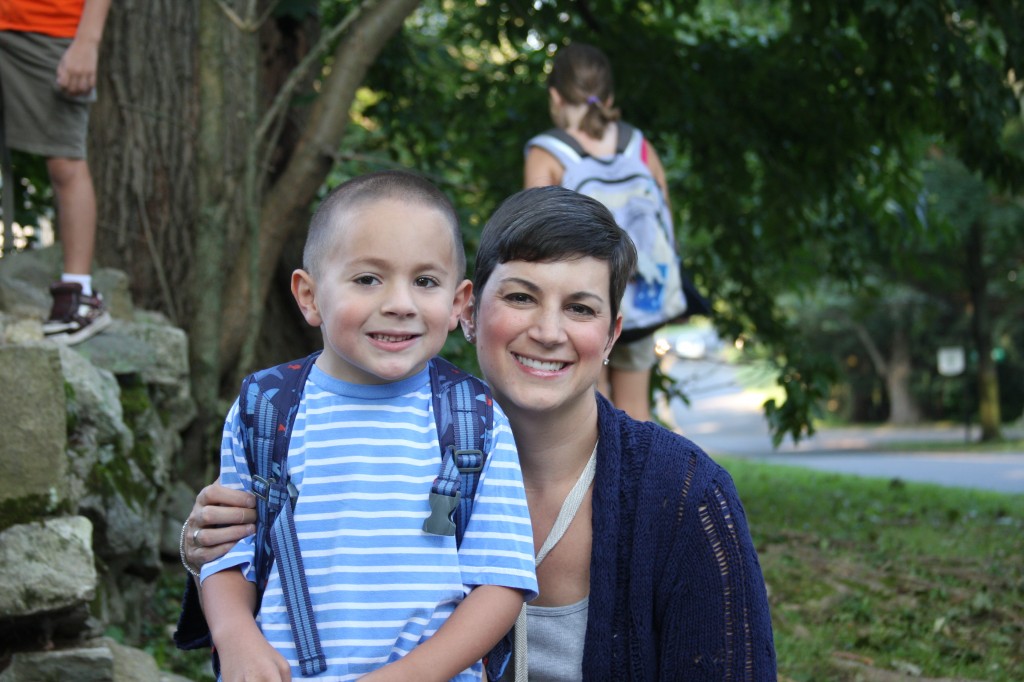
The house is so quiet… for the first time ever, all three of my children are out the door before 8:00. Tristan will have half days of kindergarten for the first two weeks so the change from preschool won’t be too dramatic. And yet, somehow with his backpack on, lunch pack clipped to it, it is different. He stands at the bus stop with a bunch of other children from the street; some of them were babies when we first moved here seven years ago. I see the changes in them after the summer more easily than in my own.
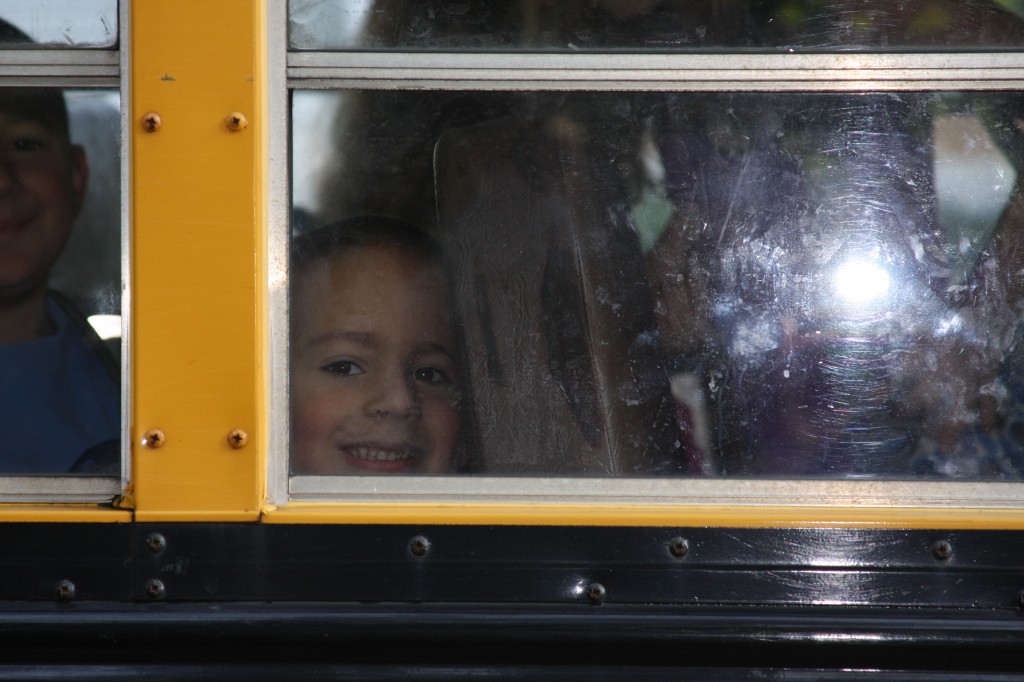
These are the psychological stretch marks I’ve written about before. These are the moments you know are monumental. Growth happens in fits and starts, not with smooth, sliding grace. This shift is simultaneously sudden and gradual in its arrival; I’ve been counting the days for the last month, but still the finality of its presence takes my breath away. With Tristan it’s different, his life thus far has been a challenge in many ways (background on Tristan and his physical abnormalities here). We’ve been a team, and worked so hard together. He will continue with OT and PT and need a few modifications in the classroom. But I know he’s going to be just fine.
I’m looking forward to writing again… the last month has been busy with things mostly of the unpleasant kind. But the routine of the fall, the schedules, the calendars give me structure. And with structure comes comfort. I can get through this rocky time. I can create the life I want, the one I need. I just have to keep trying.
July 14th, 2011 §
Sunday will be the four year anniversary of the day I had breast recontruction surgery after cancer. My tissue expanders were removed once chemotherapy was over and my silicone implants were put in. Last week I had my annual visit to my plastic/reconstructive surgeon and received the all-clear to now have a visit every two years. It’s always gratifying when the time in between visits gets longer; I remember when I was there at least once a week during the reconstruction process.
“Did you know it’s been four years since your surgery?” my surgeon asked. Immediately he chuckled, “Of course you know that,” he said, realizing my mental calendar was certainly more precise than his– of course I marked the days off in my head.
Whenever I sit in a waiting room I am instantly transported to that place and time. I sit and watch patients walking in and walking out. I can tell by hearing what the time interval until their next appointment what stage of treatment they are in.
I sit in the chair, the same one I did four years ago.
It’s the same chair, but I am not the same person.
My body is not the same.
There is continuity in that chair.
There is a story it tells me.
I wrote this piece to the next person who sits in that chair.
………………………….
That chair you’re sitting in?
I’ve sat in it too.
In waiting rooms. Chemo rooms. Prep rooms. For tests. Surgeries. Procedures. Inpatient. Outpatient. Emergency visits. Routine visits. Urgent visits. To see generalists. Specialists. Surgeons. Alone. With friends. With family members. As a new patient. Established patient. Good news. Bad news. I’ve left with new scars. Prescriptions. Appointments. Words of wisdom. Theories. Guesses. Opinions. Statistics. Charts. Plans. Tests. Words of assurance. More bloodwork. Nothing new. Nothing gained. Nothing but a bill.
That feeling you’re having?
I’ve had it too.
Shock. Disbelief. Denial. Grief. Anger. Frustration. Numbness. Sadness. Resignation. Confusion. Consternation. Curiosity. Determination. Dread. Anxiety. Guilt. Regret. Loss. Pain. Emptiness. Embarrassment. Shame. Loneliness.
That day you’re dreading?
I’ve dreaded it too.
The first time you speak the words, “I have cancer.” The first time you hear “Mommy has cancer.” The day you wear a pink shirt instead of a white shirt. Anniversary day. Chemo day. Surgery day. Scan day. Decision day. Baldness day. The day the options run out.
Those reactions you’re getting?
I’ve had them too.
Stares. Questions. Pity. Blank looks. Insensitivity. Jaw-dropping comments.
Those side effects you dread?
I’ve dreaded them too.
Nausea. Vomiting. Pain. Broken bones. Weakened heart. Baldness. Hair loss. Everywhere. Unrelenting runny nose. Fatigue. Depression. Hot flashes. Insomnia. Night sweats. Migraines. Loss of appetite. Loss of libido. Loss of breasts. Phantom pain. Infection. Fluid accumulation. Bone pain. Neuropathy. Numbness. Joint pain. Taste changes. Weight gain. Weight loss. Some of them happen. Some don’t. Eventually, though? You name it. It changes. Temporarily anyway.
That embarrassment you’re feeling?
I’ve felt it too.
Buying a swimsuit. Getting a tight-fitting shirt stuck on my body in the dressing room. Having a child say “You don’t have any eyebrows, do you?” Wearing a scarf. Day after day. Wondering about wearing a wig because it’s windy outside and it might not stay on.
That fear you’re suppressing?
I’ve squelched it too.
Will this kill me? How bad is chemo going to be? How am I going to manage 3 kids and get through it? Will my cancer come back and take me away from my life? Will it make the quality of life I have left so bad I won’t want to be here anymore? Is this pain in my back a recurrence? Do I need to call a doctor? If it comes back would I do any more chemo or is this as much fight as I’ve got in me? What is worse: the disease or the treatment?
That day you’re yearning for?
I’ve celebrated it too.
“Your counts are good” day. “Your x-ray is clear” day. “Now you can go longer between appointments” day. “See you in a year”day. First-sign-of-hair day. First-day-without-covering-your-head day. First taste of food day. First Monday chemo-isn’t-in-the-calendar day. Expanders-out, implants-in day. First walk-without-being-tired day. First game-of-catch-with-the-kids day. First day out for lunch with friends day. First haircut day. “Hey, I went a whole day without thinking about cancer” day. “Someone asked me how I’m doing, I said ‘fine’ and I meant it” day.
That hope you have?
I have it too:
A cure.
Don’t you think that would be amazing?
I think so too.
June 30th, 2011 §
It’s not that I didn’t like my right breast.
It hadn’t really ever done anything “bad” to me, except for the few times when it wouldn’t keep up with the milk production of the left one during the months when I nursed my children.
I didn’t harbor any negative feelings for it. In fact, I didn’t think about my breasts much at all except to chuckle at the sagging that inevitably comes with middle age and three pregnancies.
But all of that changed with four words: You have breast cancer.
The cancer was in my left breast: I needed a mastectomy. But what about the “good” breast?
Note the popular lingo: the non-cancerous breast quickly becomes tagged as the good one– like a good child who behaves and does what it’s told, the non-cancerous breast has faithfully done its duty and stayed healthy.
The left breast?
Well, that’s the traitor.
I had a decision: what would I do with the right breast?
Keep it?
Toss it out in biohazard trash?
With four words, that part of my body became a liability. I didn’t want that breast anymore, thanks. I’d rather have no breasts than one. Mentally, it was much easier to me to part with both, not live the rest of my life in fear of what might be lurking in that tissue.
To be clear, surgeons and oncologists explained that in their opinion, my chance of getting cancer in the right breast was no higher than my chance of getting breast cancer in the first place; I wasn’t necessarily at increased risk of breast cancer on the other side.
But:
I had already been a statistical anomaly.
I had gotten cancer at 37.
I was BRCA-1 and 2 negative (but didn’t know it at the time).
In my mind I thought:
Go ahead and tell me that, but I don’t believe you.
And so I heard their words.
I understood their words.
But I didn’t believe them.
And time proved me right.
I opted for bilateral mastectomies. And when the pathology came back, there was abnormal tube proliferation and some cell dysplasia. Things were awry in my right breast even though nothing had shown up on the mammogram.
Now, yes, eventually I would have found the problems when the cell proliferation got large enough to be detected on a mammogram or MRI. And maybe my chemotherapy would have gotten these cells anyway.
But are you really going to take that chance?
I wasn’t.
Body parts become liabilities.
My perspective about my body has changed so much in the last four years. My body itself has changed so much too.
I’m not exaggerating when I say that, like aging itself, the side effects of removing my ovaries one year after my mastectomies has changed almost everything about my health as I know it.
I went to the kitchen just now and pulled out my binder of cancer records to double-check my pathology report to write this blogpost.
And there it says, quite plainly, that my cancer was 1 mm from the deep margin (chest wall).
One millimeter.
A hair’s diameter.
A grain of sugar.
It always takes my breath away.
A millimeter.
So many people link their happiness to pounds, or inches, or dollars.
Me?
I think part of my future might hinge on that millimeter.
I’m counting on it.
And moving forward.
June 17th, 2011 §
I wrote this in 2009 for my father in honor of his 70th birthday.
I am turning forty, and I still call my father Daddy sometimes.
And when I do, my voice still catches in my throat.
I’m still his little girl.
I always will be.
When I found out I was pregnant with Paige, I remember Clarke saying,
“One of the great things about having a daughter is that she will always stay my little girl.”
He knew this from watching me with my father.
My father is strong, unflappable, and focused–
Things you’d like from a heart surgeon.
Daily in the operating room I know my father displayed strength under pressure. He had to.
But the greatest demonstration of this characteristic came not in his professional life, but in his personal life when his two girls—my mother and I — needed him.
In 2004 my mom was diagnosed with cancer.
Three years later so was I.
I am often asked if my dad took control of my medical care– if he took charge and told me what to do.
Those people obviously don’t know me very well.
After all, I am my father’s daughter.
Nobody tells me what to do.
Not even my father.
That’s how I knew I had earned his respect.
He didn’t take charge.
He met each of my surgeons one time.
He knew immediately I’d chosen well.
While he wanted to know every detail,
It was because he loved me, not because he questioned me.
He trusted me.
Finally I knew I had graduated.
Grasshopper had grown up.
He has always been my teacher.
I have always been his student.
Life with him has been a master class.
He was a tough teacher.
He brought out the best in this student.
That’s what a good teacher does.
He doesn’t ask.
You just know.
You want to do your best.
You want to impress him.
You want him to take notice.
You want to earn his respect.
It’s taken forty years,
But I finally feel I’ve earned it.
It wasn’t in school.
Or with my grades.
Or with a job.
Or by getting into a certain college.
It was, instead, in the school of life.
The way I live each day.
The way I move through the world.
The way I raise my children.
The people they are becoming.
The home I have made,
The challenges I have encountered.
And the tools I have used to meet them.
I learned these life lessons from both my parents.
A girl could have no better teachers.
A thank you to my parents.
You are my supporters,
My teachers,
My friends.
Mom and Dad:
Eternal gratitude.
I love you.
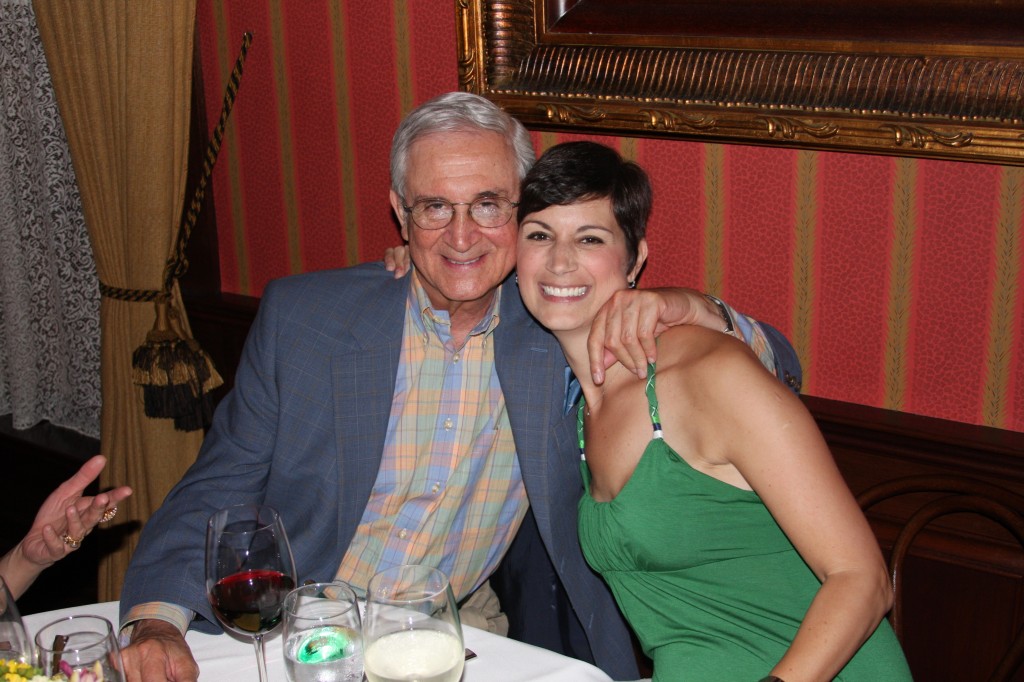
June 6th, 2011 §
The rest of my family is coming back today. After a week in Jackson Hole, Clarke and Paige and Colin will return tonight, just in time for Colin’s 7th birthday tomorrow.
The refrigerator has been really empty this week. With just a 2-year old and me, it doesn’t take much to keep us fed. So I took the opportunity this morning to clean out the refrigerator and freezer– really clean them. Take everything out, throw away all the junk, the ice cream that now is just ice crystals. I tossed all of those “placeholders” that you never eat, they just take up room.
As I sprayed a wonderful new lemon verbena spray on the glass shelves, I start contemplating this week. The last seven days were my week to recover from surgery (an oophorectomy), to get stronger, to close out my year. I know I made the right decision not to join my family in Wyoming this year. It’s been a reflective time, a time for my soul to be quiet and heal. I think it’s done that a little. I think another week might help. I’ve loved my one-on-one time with Tristan; we have a nice little routine going, and I feel like he’s grown up this week.
But as the new year starts, of course, we are pushed to reflect on ourselves, to make ourselves better in the next 365 days. We reflexively reflect on whether we’ve kept any of those elusive resolutions from the previous year. December 31st is supposed to bring “closure.” In the arbitrary distinction between one year and the next (after all, why is there really a difference between the last day of 2008 and the first of 2009 any more so than any other passage of midnight on any other day of the year), we are pushed to wipe the slate clean and start anew. As I cleaned the house this week, purging old canned goods, papers, clothing, and sprucing up the house I found I was instinctively doing this: “Out with the old, in with the new.”
This annual rehabilitation, then, is supposed to be psychological and physical.
Most of our resolutions are about ways we want to be better, inside and out: concentrating on the new and gaining closure on the past.
One of my dearest friends wrote to me in an email last week, “And yet, you can no more gain ‘closure’ on life-altering events than you can erase moments from your memory.” I read that sentence many times. It is beautiful, and true.
I remember well when my friend Alex’s father died of cancer almost 10 years ago. She was so busy with all of the things that needed to be done, the arrangements that needed to be made, and taking care of her mother who needed constant attention and support. I remember wondering when she was going to grieve. I worried that his death, and his absence from her life, would fester and haunt her.
As I scrubbed the refrigerator shelves this morning I realized that you never grieve the way you think you should.
No one really just sits alone and thinks about the tragedies that befall them.
It’s too painful, too powerful to take that in as one big gulp.
Instead, what we do is weave it into the tapestry of our consciousness.
We make it part of our daily life, quiet, but present.
Maybe at this time of year we reflect more than usual, and maybe that’s why the holidays are painful as we take stock of what we’ve lost during the year and what we’ve gained.
Where that balance lands says a lot.
A year ago I thought surely 2008 would be better than 2007. It really didn’t turn out that way. But I am doggedly optimistic even when I’ve been been proven wrong so many times. I do not believe that there is a “justice meter” in the universe that is going to now dump things on someone else and leave me alone for a year. But maybe as my own tapestry of consciousness keeps getting woven, it will be stronger and more resilient to keep me going this year.
At least I’m starting with a clean refrigerator.
originally written January 2, 2009. Modified June 6, 2011
June 3rd, 2011 §
More often than not, cancer creeps into conversations with friends. New friends, old friends.
I don’t think I’m obsessed with it. I don’t have to talk about it. Why does it come up?
Is there a cancer radar?
Is it just that when cancer folks are together we let our guard down to share?
Do we want to compare notes and try to get information from each other?
Probably all of the above.
Here’s also where I think it comes from: talking about illness is grounding. It puts the emphasis where it should be. I have many friends who have family members who either have had or currently have cancer. We’re a club. There is a support we can provide for each other, a language we can speak. Stages, grades, blood counts, oncologists, PET scans, MRIs, tumor markers… and on it goes. I really think I should get credit for CSL… cancer as a second language.
I like people who “get it”; I find more and more that I am naturally drawn to them. I’m rarely surprised to find that new friends of mine have had some type of hardship in their lives.
Maybe it’s just that more and more people have “something” in their life story.
Maybe those are the people I gravitate to.
Maybe they are drawn to me (or the “vacuous people need not talk to me” sign I have on my back scares others away).
It’s not that I don’t like talking about shoes or The Bachelorette or movies. I do– a lot. And I actually do think they matter. It’s important to have a break from the heavy, serious stuff. Some people think that the small stuff is all there is– that it matters. Those people are hard for me to take.
One day, shortly after I was diagnosed, I sat watching my son take a tennis lesson. I was still numb and reeling from the news that I had cancer. I hadn’t started chemo, and was still awaiting surgery. I knew what I was facing: double mastectomy and chemo. But to the outside world I looked totally normal; no one would know what news I had received.
There were two moms sitting near me chatting loudly while their kids had their lesson. These were the days before the recession, when women in my town were flush with cash, and living high on the hog. They were talking about vacations. “I just can’t decide where we should go for vacations this year,” one said, “John has so many vacation days it’s going to be hard to use them all. We could go to Switzerland again. But that’s kind of boring. And there’s the Caribbean. But I kind of want to do something different. What do you think?” she said to her friend.
I know what I thought. I thought someone needed to hogtie me to the chair before I punched her out. That was a problem? It was one of the few times I really wanted to say “Lady, let me tell you about a problem.” But I didn’t.
Why?
Because maybe her mammogram was the next day.
Maybe she was a day from being told there was something suspicious on it.
Maybe she was a week away from having a biopsy.
Maybe she was a month from having a double mastectomy.
Maybe she was six weeks from starting chemo.
Maybe she was just about to learn the lessons I was learning.
May 30th, 2011 §
Each year my letter to troops stationed overseas is similar. Each year I question whether I should write something new, if it’s “cheating” to say the same thing. In the end I realize that thank you never gets old, it never needs to be re-written. Thank you doesn’t have an expiration date.
This year we went to buy items for the care package drive sponsored by the Darien Little League. Volunteers collect supplies including toiletries, non-perishable food, and games and send them to soldiers far from home. While the supplies are important, and more than 500 boxes will go, the most important items sent are the letters. The letter I sent this year has the same theme: bravery– chance or choice?
May 28, 2011
Dear Servicemen/women,
My family and I are sending you some supplies on this Memorial Day Weekend. We want you to know that we have not forgotten you or the sacrifice you are making every day to be away from your own families and in harm’s way. It’s not much, but perhaps knowing you are in our hearts and minds will help.
Four years ago I was diagnosed with cancer (I am now in remission). When I was going through treatment, people called me brave. I didn’t deserve it. “Brave” was not a word you used about someone like me. I had gotten cancer by chance and I dealt with it, the best I could.
But soldiers? You are brave. You have a choice—you put your lives on the line after making a conscious decision to do so. You know the danger and you do it anyway. To me, that is true bravery, true heroism.
It feels good to say it, to confess it. I have been called a word I haven’t earned.
Seeing danger and making the choice to proceed anyway is precisely how I define bravery. We all find ways to deal with the fear of death. We know the uncertainty that lies ahead. We see the bravery in others before we will see it in ourselves.
What underlies bravery: chance or choice? Can both? Are we just hesitant to see the quality in ourselves? Are we just modest? Do we just act the way we need to, to get the job done?
I think when you choose to throw your hat in the ring, that choice counts for something. That makes you brave. That’s what makes soldiers heroes. Happy Memorial Day to you. And thank you for your continued service to our country.
May 18th, 2011 §
A few weeks ago I was talking with a friend about our blogs. She said that she never writes about her husband; some readers didn’t even know she was married. I don’t directly write about my husband Clarke often. I’ve written endlessly about his mother Barbara’s sudden death in a car crash in 2009 (if you want to read more about her, please click on the tag “Barbara” on the lower right of the page) but not about Clarke. Clarke is private, and I respect the fact that he doesn’t want to write or discuss topics that I do.
Clarke wrote a piece that I treasure. In 2009 he nominated me as a “Brave Chick” for a website that celebrated women who had tackled adversity (www.onebravechick.com). The interesting thing to me as I re-read the essay now is how much more has happened since then. We’ve had many medical and emotional challenges since this letter was written. I like to think that the seeds of strength were sown during some of these experiences.
I am re-posting this today not to celebrate myself, but rather to celebrate my husband. We are a team in this thing called life and I couldn’t do it without him. I hope I will get him back here on the blog sometime to write about some more of the issues we have dealt with; I think hearing it from his point of view might be helpful for some readers. But for now I will let his words sing, and hopefully honor him by doing so.
…………………………………..
“The bravest sight in the world is to see a great man (or woman) struggling against adversity.”
-Seneca
“Let us do our duty, in our shop in our kitchen, in the market, the street, the office, the school, the home, just as faithfully as if we stood in the front rank of some great battle, and knew that victory for mankind depends on our bravery, strength, and skill. When we do that, the humblest of us will be serving in that great army which achieves the welfare of the world”
-William Makepeace Thackeray
My wife Lisa and I met for the very first time at the George Foreman / Evander Holyfield fight in the spring of 1991 when, in a scene straight out of Rocky, a forty-two year old Foreman went the distance with the undefeated Holyfield. We met again at a Halloween party later that year and began dating. We got engaged in 1995 and married in the summer of the 1997. Over the course of our 18 years together and in particular the last three, it has become clear to me that my wife possesses more than her share of courage.
As with any 18 year period we have had our ups and downs together but mostly it has been up. We have three beautiful and intelligent children, loving and supportive families and great friends.
In the grand scheme of things, our life together was pretty smooth which is why I think we were completely unprepared for what the last three years have brought us. In August of 2006 we learned that our five month old baby boy was born with a condition that required immediate open heart surgery. He also had complex problems with his cervical vertebrae and the muscles of his hands that would require a significant ongoing investment of time and energy in medical care and therapy.
Since Lisa is at home with the kids when I’m at work, the day-to-day heavy lifting of running the house and managing the often crazy logistics of our lives naturally fall to her. In addition, because she is the medically savvy one in our family (her father is a surgeon and her mother is a psychologist), Lisa ended up quarterbacking and supervising Tristan’s care which included (and still does include to some extent) coordinating treatment with four or five different specialists (neurologists, pulmonary specialists, pediatric cardiothoracic and orthopedic surgeons, etc.) in three different cities. Juggling all of those competing priorities was extremely challenging and time-consuming. It seemed like fate was piling on hardship in January of 2007 when Lisa was diagnosed with Stage II breast cancer.
Lisa spent much of 2007 aggressively treating her cancer with a double mastectomy and chemotherapy. I’m sure many women who read your website are acquainted with the harsh reality of how tough a cancer treatment regimen can be on one’s body and, just as importantly, one’s psyche. I must confess that I wasn’t really prepared for what was to follow. Like many things, cancer treatment seems much simpler in the abstract or on television than in the messy reality of real life. It is a process where you are forced to make life-changing and often heartbreaking decisions while in possession of only limited information all the while dealing with the physical, mental, and emotional side effects of disease itself and the treatment. If adversity is the test by which character is revealed then I’m proud to say that my bride has passed her personal test with flying colors.
At least by the romanticized ideals of literature or history you don’t get to see real bravery very often when you live in Darien, Connecticut (braving the long lines at the local Starbucks doesn’t really count). However, there was something quietly heroic in how Lisa handled the myriad of issues she was dealing with in a thoughtful and calm (with some exceptions) manner all the while taking care of the thousand little details that go along with being a mom to a young family. No matter how much personal pain she was in, the kids’ lunches got made, their homework got done, their boo-boos got kissed, and their very real fears addressed and soothed even on the very worst days. Tending to young kids isn’t easy on your best day but being able to do so and face the world in the midst of cancer and chemo and all that implies is something else altogether.
Looking back, the amazing thing to me is how little impact the whole period had on our children; that speaks to how much of her energy and force of will Lisa put into ensuring that that was the case. We had lots of help from our families and our amazing group of friends, but at the center was Lisa getting up each day and doing her best to move forward with grace and determination (kind of like a 42 year-old George Foreman coming out of his corner, taking his licks and getting in some good shots of his own). In my book, that is all any of us can really expect of ourselves and defines what bravery is all about. When my test comes, I hope I do as well and face up to it with as much strength as Lisa did.
A friend whose wife had just gone through the breast cancer experience told me when I learned about Lisa’s diagnosis “the thing about breast cancer (pardon another tortured sports metaphor) is that you never get to spike the ball in the end zone and say you are done. There is always something else.” I thought I understood what he was saying at the time, but I appreciate it much more now. Although chemo ended in the summer of 2007 and her breast reconstruction finished shortly thereafter, Lisa has been dealing with the often frustrating regimen of drugs and side effects that come along with being a cancer survivor. While things are certainly better than they were, it has been a constant challenge and adjustment for both of us.
As I said earlier, one of the most difficult things about having cancer, even a cancer that is as common and well known as breast cancer, is that you really don’t have any idea what is ahead of you as either a patient or a spouse when you begin the process. There are reams of data and academic studies available but despite that fact, it is difficult to distill and digest all of that into a coherent picture as to what you as an individual (or the spouse of one) will experience.
As part of her life as a cancer survivor, Lisa has taken it upon herself to make understanding the long road of treatment, recovery, and being your own best advocate a little easier for women who will face the same challenges she did. She spends hours and hours speaking to women in our community who are just beginning the process about what she has been through in the hopes it will help them be prepared. As an extension of those conversations she began writing (and later blogging) about her experiences and feelings about cancer and posting them on the web. She sometimes writes clinically about the nitty-gritty medical realities of treatment and recovery which are based on her personal experiences, extensive research of the available medical literature, and her own conversations with her doctors.
Other times she examines the darker, emotional, frustrating, and deeply personal places that being a cancer survivor can sometimes bring you as young woman and a young mom. Her writing is often beautiful and poetic and is always thoughtful and enlightening. She puts it all “out there” for public scrutiny. She posts regularly under her own name to help her fellow women (our moms and sisters and daughters) understand and deal with a path that all too many of them will walk down at some point in their lives. I believe this is noble and selfless and courageous.
So as a very small and modest way of acknowledging her daily efforts and recognizing her achievements, I would like to nominate Lisa Adams (age 39), loving wife, wonderful mother, caring friend, talented writer, and strong cancer survivor to be a featured brave chick. I would invite those members of your community who are interested to check out her writing at lisabadams.com.
Thanks for your time and dedication to Brave Chicks everywhere.
Clarke Adams
July 7, 2009
May 13th, 2011 §
One of the defining features of childhood is innocence.
As children we don’t realize that things change. We think the way that things are when we go to bed at night is the way they will be in the morning. We put the bookmark in our lives and expect everything to be the same when we return to it.
Of course, as we grow we realize that’s not true.
That it can’t be true.
That’s not how things happen.
That’s not the way the world works.
And what do we say when someone still believes it? We say he is being childish.
Oftentimes I wish I could retreat to childhood. Not because of how my childhood was, but because I want to recapture that mindset, the one that says that everything is going to be alright. When people tell me “everything is going to be fine” I snort. I recoil. I don’t believe them.
It’s not always going to be alright.
Sometimes it is. Sometimes it isn’t.
But the road you must take to figure it out might break you before you ever find out for sure.
May 8th, 2011 §
I can do better, but I have done my best so far.
I’m not the fun mom, but I’ve taught my children big lessons in their young lives.
I try to be a good wife, mother, daughter, friend.
I try to inhabit the womanly roles even when I don’t always feel feminine.
I spend a lot of time inside my head,
twisting, pulling, ruminating.
It doesn’t mean I’m sad. It means I’m thinking.
I’ve made mistakes,
I regret some of them.
But my children are not those mistakes: they are my legacies.
I look at them and wonder how it can be that Clarke and I have created three people. Literally given them life.
It is a joy for a mother to see her children grow,
learn to inhabit the space they take in the world,
learn to own that property.
It’s as if children need to learn the size of their bodies– the breadth of their being– in order to go out into the world and participate in it.
I love watching this process unfold.
I can do better in the future, but I have done my best so far to mother them.
And really, that’s all anyone can ask.
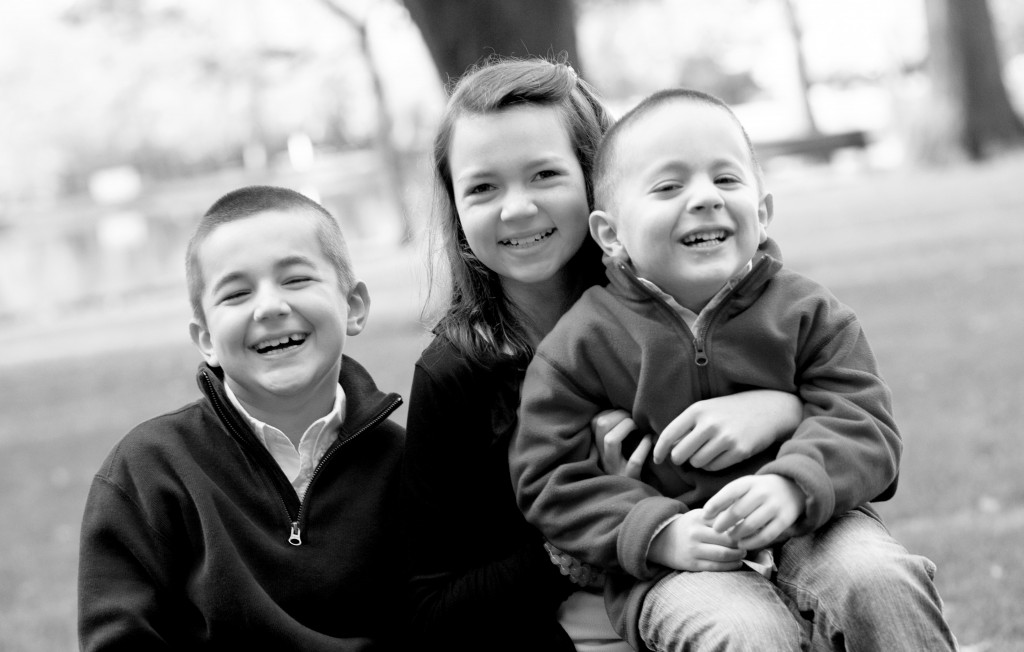
April 24th, 2011 §
I have a friend — a good friend. We’ve known each other for a long time. When I was going through chemotherapy for breast cancer, however, she wasn’t my most sympathetic friend. One of her typical reactions when I would talk about the bottomless fear of cancer recurrence that was swallowing me up was, “Well, I guess you’ll just have to get used to it.”
This was not really stellar support in my book; I think she could have done better. In my mind, because a close family member of hers had cancer in her past, she was not a stranger to its emotional component. Perhaps if no one in her life had ever had cancer I might have been more forgiving. Her relative was doing well, still in remission many years after her initial diagnosis. I mentally wrestled with myself: was I being too hard on a friend? After all, my emotions were on a rollercoaster. Things that didn’t bother me one day would infuriate me the next. Was I actually trying to let her off the hook for not emotionally supporting me? Was I excusing bad behavior? If those who have no experience with cancer shy away from those who are ill and those who have experience do so as well (if the memories are too painful to think about) then who is left to support you when needed? I couldn’t decide if I was expecting too much; maybe I was setting my friend up for failure.
Many times on the phone with her during my months on chemo as she proceeded to rant about the problems in her life and the ways in which things were not going her way, I wanted to point out to her how my life was “doing me wrong” in a bigger way.
Looking back, I wanted to trump her woe.
Lately, she has been having some medical issues of her own. Nothing permanent or relatively serious, but annoying and painful. For the last few weeks she has had some pain that is “excruciating.” She’s abroad this week, on vacation with her family. The pain, I guess, was not enough to keep her from that. While she has complained about her pain, her appointments, her problems for the last few weeks, I’ve really been holding back. I’ve really had to fight the part of me that wants to once again lash out.
“I guess you will just have to deal with it,” I want to say just like she did to me.
“I guess it’s not bad enough you can’t take your European vacation,” I want to say in a childish retort.
I want to trump her pain.
I want to wave the cancer card. Cancer trumps her issue, chemo trumps the discomfort she’s got.
Four years ago I found it almost intolerable that she should complain to me about the small things that were bugging her… the traffic on the way to school dropoff and how “inconvenient” her child’s schedules were. The way she had to take her child to the doctor twice in one week to check out an ear infection. How repairmen were keeping her waiting.
These things get sympathy from me under normal circumstances; these are things that bug me in my own daily life.
But not then.
While I kept silent then,
put it behind me then,
this latest round of friendship injustice just makes that time raw once more.
It brings that anger back.
My fear is that every time my friend has a hard time from now on, I am going to again have that feeling that she let me down when I needed her. I thought I had moved past it, but I guess not.
I don’t want it to get in the way of our friendship.
Maybe someone who wasn’t there for me then can’t really be a friend now.
Maybe some lessons can’t be learned until you go through them for yourself.
Maybe she can’t know how her responses hurt me unless she experiences it for herself someday.
The thing is: I don’t wish it on her.
People have different strengths.
We shouldn’t expect a person to be good at everything–
To fulfill all of our needs, all the time.
Extraordinary times call for extraordinary measures.
Maybe that’s true of forgiveness too.
April 22nd, 2011 §
Sometimes a random comment stays with you forever. When I was in high school, a guidance counselor said something with me that has stuck in my mind for more than 20 years. I think I had lost a student council election and was discussing it with this advisor. I am actually not sure what the triggering event was, but I vividly remember her words to me: There are people that you like, and there are people that you respect. You are the kind of person that people will respect, but they will never like.
Setting aside the ridiculous (and destructive) way of simplifying the world into these two camps, what effect did this counselor’s words have on me?
This interaction started a time of introspection and self-examination. I felt for a number of years that I needed to choose: did I want to be liked or respected? Which is more important? Did I have the self-confidence and awareness to eschew the lure of peer pressure and popularity? Should I solely strive to engender respect instead?
I spent a while in college trying to figure it out. I literally “tried on” different combinations of being easygoing (likable) with allowing my stronger, perhaps more abrasive side to emerge.
Somewhere along the way, I found my voice in the classroom– first as a student, and later as an instructor. I think that’s where I first felt comfortable with who I was. I gathered confidence as time went on. Looking back on it, I think I learned the art of self-expression in the classroom. I realized the importance of being able to articulate opinions in a way that is diplomatic; by doing this, one could be liked and respected.
Somehow, in my independence and natural process of maturing, I realized that the counselor was wrong. Her heuristic for analyzing the world was absolutely incorrect. Though it doesn’t necessarily happen that way, you can be liked and respected. It is not a Pareto-optimal choice you must make (where choosing one necessarily comes at the expense of the other).
I have spent much of my adult life trying to prove that woman wrong. In hindsight, her statement was probably more a reflection of her own psychological insecurities than an assessment of mine. I certainly have my own internal struggles, but I’m not about to let words from 20 years ago plague me. In the end, I think I have found a balance. I hope I have.
April 11th, 2011 §
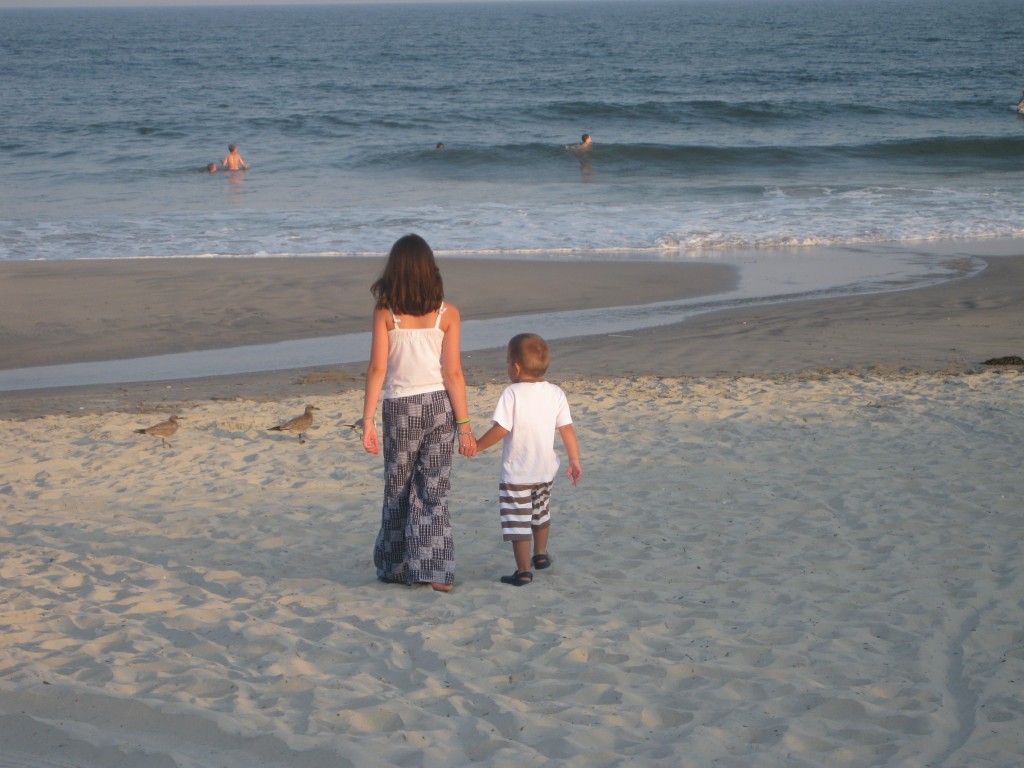 The months and years go by. Like all of you I mourn the quick passage of time. “Where did the fall/winter/year go?” I hear my friends asking.
The months and years go by. Like all of you I mourn the quick passage of time. “Where did the fall/winter/year go?” I hear my friends asking.
Projects we hoped would be accomplished — tasks we hoped would be done — sit unfinished. Organizing photos, cleaning out a closet or a room, reading that book a friend recommended; many things went undone in the dark and cold months of winter.
Maybe there were emergencies, maybe there were health issues, maybe you just couldn’t get the energy together to accomplish everything you wanted.
Regardless the reason, there can be a bit of disappointment when a season ends.
Growth happens in fits and spurts, not with smooth, sliding grace.
With each phase comes
pain,
discomfort,
unease,
restlessness,
sleeplessness,
yearning.
At the time of my mastectomies the reconstructive surgeon placed tissue expanders in my chest. These were temporary bags of saline that would be slowly filled to stretch out my skin to make room for the silicone implants that would eventually take their place. Each week, like clockwork, I returned to my surgeon’s office. He accessed a port in each expander with a needle and added saline to each side. Each time after a “fill” my chest would feel tight. The skin wasn’t big enough for the volume inside, and it would react to the increased pressure by stretching. Until the skin could replicate there was achiness, tightness, a slight ripping or tearing feeling.
A similar sensation happened to me during my pregnancies. The growth happened fast; I got stretch marks. I had visible proof my skin just couldn’t keep up; the growth was too rapid, too harsh, too vigorous.
I often wonder if mothers and fathers get psychological stretch marks when we are asked to accommodate changes we’re not quite ready for.
What can we do? What options do we have? None. We must “go with the flow” and do the best we can. Our children grow and change whether we like it or not. We do them no favors by trying to protect them, coddle them, and keep them young.
We give them wings to fly when we give them tools to be
confident
and caring
and inquisitive
and trusting
individuals.
I am often moved to tears as I watch my children grow.
I sit in wonder at the succession of infancy, childhood, and adolescence.
I know that as a mother I lack many skills, but I also know that the words I have written in my blogs and essays will one day be a gift to them too.
Not a gift to the children that they are, but instead a gift to the adults that I am raising them to be.
Each August as they go back to school I marvel that another school year has passed and yet another is here.
No matter how you measure time it always goes too fast.
The growth happens too fast.
The growing pains hurt.
The stretch marks might be invisible, but they are surely there.
March 18th, 2011 §
What if I hadn’t gone to the gynecologist on time for my 6 month post-partum visit?
What if, during the breast exam, when my left breast felt “different” (no lump, no real reason, just “different”) my doctor had dismissed it as post-nursing irregularity and told me to come back in 6 months for another exam?
What if, when I called to schedule the mammogram (only 18 months after a clear one) and they said it would be a few months for an appointment I had said, “Okay”?
What if I hadn’t called my doctor to tell her that’s how long it would take and ask if that was acceptable?
What if she’d said “yes”?
What if I hadn’t opted for a double mastectomy?
What if I hadn’t gone for a second opinion on chemotherapy? What if I hadn’t gotten a second pathologist to review my slides?
What if that didn’t happen and I didn’t find out with that second look that I actually had invasive ductal carcinoma in one breast, in my lymph node, and dysplastic cells in the other breast?
What if I had decided not to do those things? Where would I be now?
What if I hadn’t been assertive, perceptive, inquisitive, impatient, and willing to do what it took to get answers?
I probably wouldn’t be alive. Or if I were, I’d be spending my time treating an advanced cancer.
Not blowing bubbles with Tristan today,
Not praising Colin for his schoolwork,
Not planning Paige’s sleepover for tomorrow.
I wouldn’t be able to enjoy the things I enjoyed today.
But I am here.
I was able to be with my family.
I was able to help others.
I am able to look to the future with hope.
And for that, I am happy.
March 14th, 2011 §
My parents came to visit on Saturday. They stayed for 24 hours, took the kids out for dinner that night and played lots of games of hide-and-go-seek. Nothing extraordinary, nothing particularly notable. It is in these ordinary moments that I find the most pleasure… seeing my parents and my children enjoying each other’s company.
My mother arrives like an environmentally conscious Santa Claus, toting a reusable grocery bag full of mysterious treasures for the kids. Many are newspaper clippings: suggestions for books or reviews of movies they might have seen. Often they are word or logic puzzles from their local paper; for me there are usually cartoons. There’s usually something from the dollar store. Tristan is usually obsessed with whatever she brings while she is here; as soon as she leaves, so too does his interest in the item (hence the inherent beauty of the low price).
Another bag of my mother’s always contains her current knitting project. She knits in the car while my father drives. Tristan loves to wrap the house in the balls of yarn; he criss-crosses the furniture legs, counters, and walls until they are spiderwebbed. Paige has learned to knit and whenever Nana comes she enthusiastically picks up her project to join in while my mom knits. Mom knits wherever she goes. Watching Colin’s tennis lesson, sitting and listening to Paige play piano, watching Tristan ride his tricycle. She almost never looks down at her hands, something I was never able to master.
It was warm and sunny this weekend… a welcome break from the endless weeks of snow, ice, and cold we’ve had here in Connecticut. My mother sat out on the front step with Paige and they knit together while Colin shot baskets and Tristan rode his bike. I peered out the window from the kitchen at them sitting there. It made me sad and happy at the same time. I tweeted: “My mom is outside on front step teaching Paige advanced knitting techniques. I smile, I miss my MIL (mother-in-law), I feel lucky to see this moment.”
I can’t separate out the happiness of seeing my children with my mom with the sadness of wishing Barbara were here, too. Maybe that’s selfish. I know there are so many children who don’t have any grandparents that are alive, and mine still have three. But that is part of grief, I think… the effect it can have on happiness. It takes the purity away. I couldn’t just be happy to see the scene; I necessarily wished their other grandmother could have those moments.
I grabbed my phone and went outside. I wanted to capture the picture so mind won’t forget. Children often remember the quiet moments more than the big, fancy events. Paige will always associate knitting with my mom… she’s treasure the talks they had, side by side, as she knit and my mom helped her when she made a mistake. For Colin, having my dad watch him play tennis is one of the ways he likes to share with my parents. He’s proud, and knows my father is proud of him. He always gives a resounding “YES!” when I say Grandpa will be there to watch him play.
After my mom left Paige continued to knit. Shortly thereafter I knocked on her bedroom door. She answered, tears welling up in her eyes. She told me she had made a mistake. She had tried to correct it, but further wrecked the piece she was working on. She had ripped all of her work out. She would start over.
And so she did. And now, as I type, she’s sitting in a chair working diligently to recreate the work she destroyed. I know she’ll work until she goes to bed.
I know how quickly life can change.
For now, I revel in the glory of the ordinary, the everyday, the mundane.
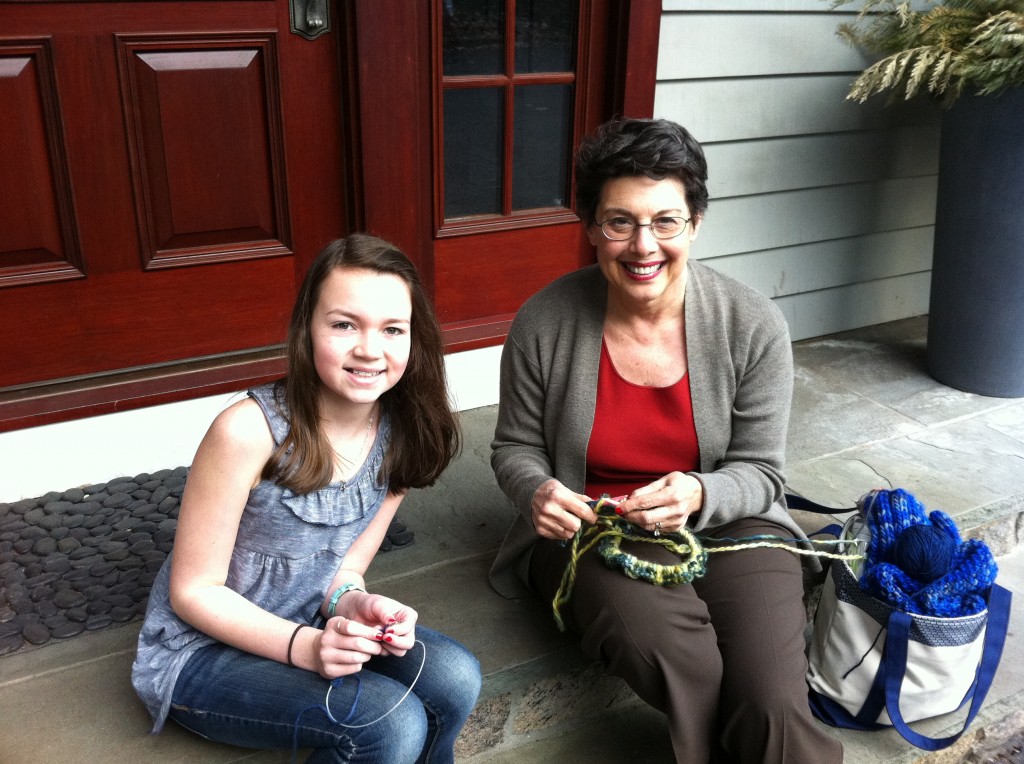
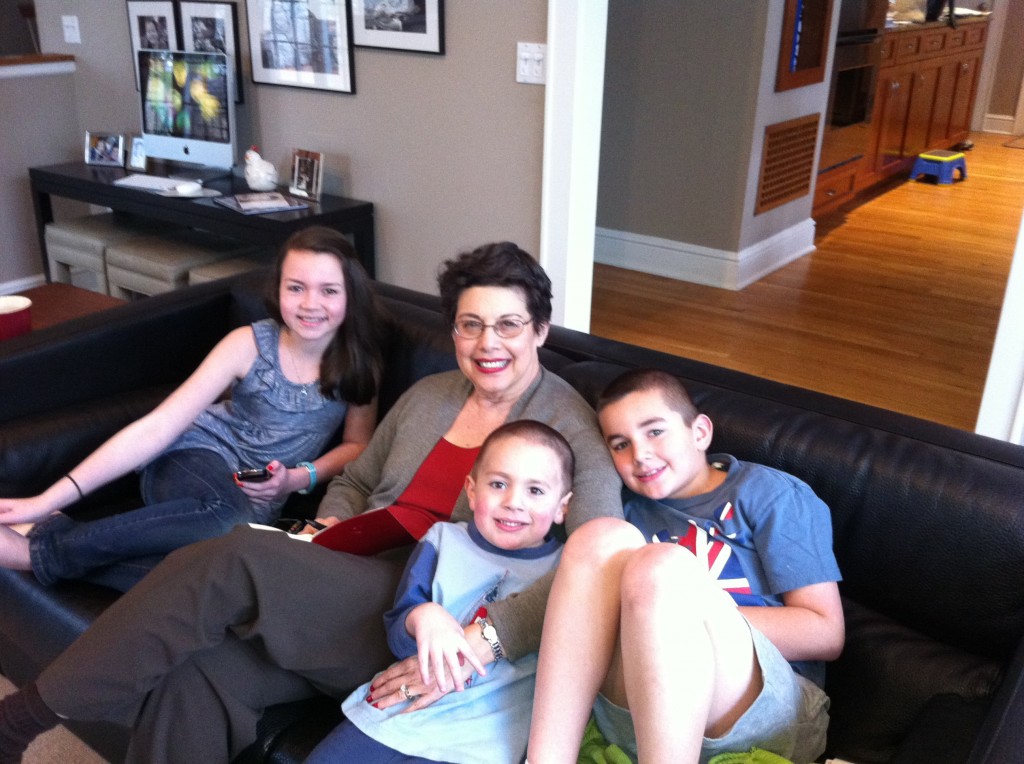
February 14th, 2011 §
Today I’m doing a follow-up to a piece I wrote last year. At Tristan’s preschool Valentine’s Day celebration last year he received loads of Valentines; one by his friend Bennett was beautifully written. At this time last year Tristan hadn’t had his tendon transfer surgery yet (you can read more about that here). He wouldn’t hold a pencil, had never colored or played with Play-Doh. He’d never written his name. I longed for the day that would happen, and in that way it usually does, I couldn’t imagine a future where he would write. It often seems when you’re in the worst of a situation, try as you might, you can’t picture a way out, or see that things will ever change. But I had hope, and belief in the surgeon who felt that the 3-pronged approach to making Tristan’s hand work better would help. I always have confidence in the resilience of children. If they want to do something, they will find a way.
Tristan did start writing. It’s neither fun nor easy for him. Cutting, pasting, drawing, writing, zippering… all of these things are a challenge. He’s miles away from having the dexterity to button. But with the help of physical therapists he’s making lots of progress. Three times a week he works on these skills now that his surgery and recovery period are over. His letters are jerky, and crooked. Some are backwards in the way that many 4 year-olds do. Markers are better; he doesn’t have to push so hard on them to make a line on the paper.
The letters may be crooked, so is his little smile. They’re beautiful to me. I know he had to concentrate and work very hard to write this well… this is the Valentine Tristan brought home to me on Friday:
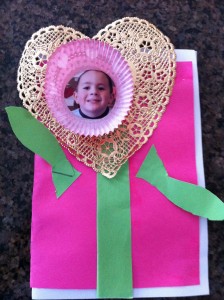
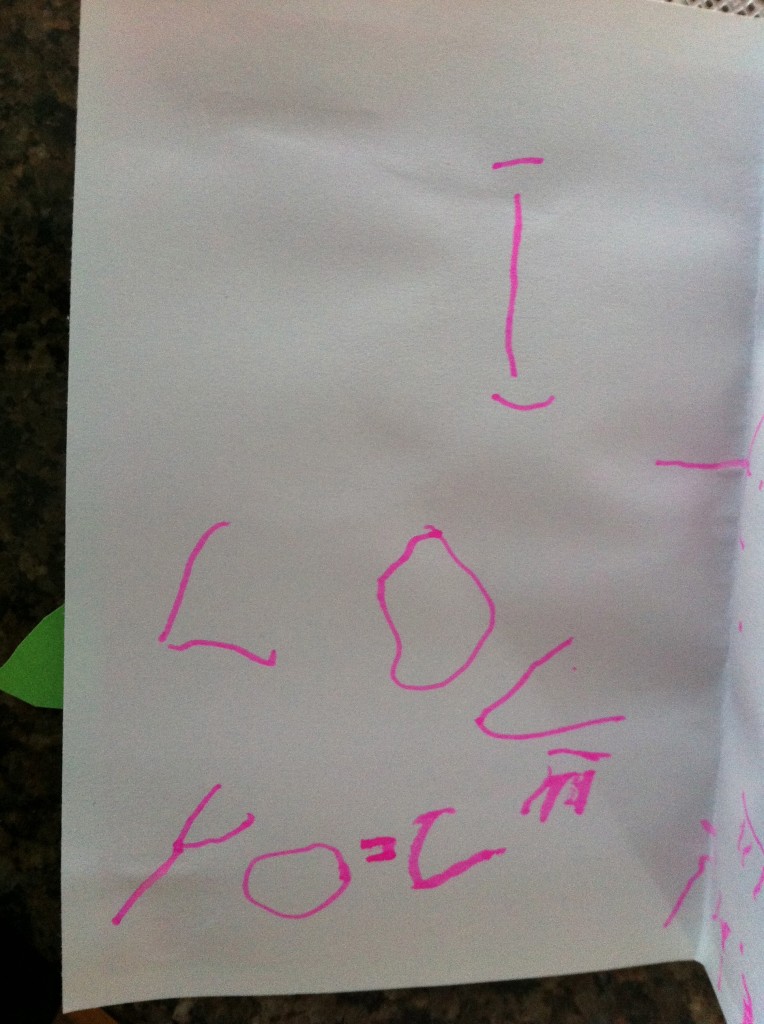
This is the one I’ve been waiting for.
It’s going in my memory box. For always.
………………………………………………..
if you missed it, this was last year’s Valentine’s post:
Tristan’s Valentine
My son Tristan is about to turn 4. I haven’t written about him much here. I started thinking about why that is, given that his life has given us more twists and turns than either of our other children. I think it’s precisely because he’s had his share of hardships that I have felt overprotective of him. But it really needn’t be that way.
Tristan’s physical problems are a bit unusual. For those of you who don’t know him, he had open heart surgery at seven months old to move an artery that was compressing his trachea, preventing him from breathing properly since the time he was born. He required feeding therapy to learn to eat after having trouble combining eating and breathing until that point.
He also had problems with his neck. From birth his head sat at an awkward angle. Doctors thought it was muscular torticollis that could be fixed with physical therapy. We did a DOC band to correct the flattened head he had as a result of this “fixed” neck position. But after a while my intuition told me it wasn’t muscular. I felt it was orthopedic, something that would be an extremely rare abnormality. I took him to an orthopedic surgeon who confirmed our fear: Tristan’s problems were more serious than just a tightened muscle.
We were told various diagnoses for his problems when he was about six months old– everything from cerebral palsy to Goldenhar Syndrome. But in the end, when pressed for a diagnosis they jokingly say he has “Tristan Adams Syndrome,” a combination of rare defects in his spine and hands.
The cervical vertebrae in his neck are not formed correctly. Half-formed, or fused together, the vertebrae near the base of his brain are mangled, appearing on x-rays, CT scans, and MRIs almost indistinguishable from one another. His adorable exterior hides a jigsaw puzzle-like appearance on the inside.
While the abnormal vertebrae caused him a severe head tilt to one side as an infant, it now appears from the outside as almost straight. As he’s grown his “z-curve” (two striking jogs in his neck which have thus far balanced eachother out; either one alone would have required surgical intervention already) has improved with growth.
We watch, we test, we monitor. If the congenital scoliosis (meaning a curvature of the spine since birth) worsens, he’ll need surgery to fuse his neck in a fixed state with rods and screws. His neck would not grow any more, and he’d have no mobility in it. Imagine having your neck in a position where it’s extremely short and you can’t turn it at all unless your whole upper body goes with it forever. So far, we’ve escaped this. But we are told that every growth spurt brings risk.
His other oddity are his hands. For the first year of his life we knew something was wrong, but no one could figure out what. He held his hands oddly. His thumbs just looked wrong– more like big toes. And finally, a hand surgeon was able to tell us: he has hypoplastic (underdeveloped) thumbs. He’s missing the muscle at the base of the thumb where the base of the thumb joins the wrist. I had never heard of that before. Likely, you haven’t either. That’s why no one could pick up on it. What does this mean? Functionally, it means his left thumb can’t bend at all. Try to pick something up holding your thumb out straight. Or hold a pencil, write your name. His right thumb bends slightly, but not “normally.” Oh, and yes, of course… he’s a lefty.
He doesn’t like to do things with his hands. He won’t write or draw. He can hold a spoon and fork, but prefers to eat with his hands.
Tristan’s surgeon says around now is a good time to do surgery to help get a bit more function in his left hand. By taking a tendon from another finger on his left hand and transplanting it to Tristan’s thumb, they hope to give him better mobility. It won’t allow him to bend his thumb. There isn’t a surgery that can do this: the muscle and tendon you use for this run all the way up to your elbow (who knew?!).
As I type this I know, looking at my thumbs while I type, that computers will be his saving grace. My thumbs stay straight when I type, and I am sure that he will learn quickly how to type and use a keyboard. He copies Paige and tries to play the piano. I think he might be able to do that too.
I remind myself about the documentaries I’ve seen over the years about people with different disabilities and how they’ve compensated. The YouTube video of the mom without arms who could change a diaper with her feet was one of the most amazing.
I know Tristan’s amazing spirit, his infectious giggle, his sweet and expressive face, his stubborn tenacity will get him through. I know he falls behind on every fine-motor skill evaluation. I know he won’t be able to play many sports well because of his hands or participate in lots of sports or fun activities because of the risk of neck injury.
When he brought home his valentines from school yesterday, his friend Bennett had written his name beautifully on the red paper. Tristan can’t write a letter. He knows them all, but he can’t write them.
My eyes teared up, jealous at the inscription.
I know he’s not going to do that anytime soon.
But I also know that somehow he will.
Someday he will.
And when he does,
that valentine with his name and mine
will go into my special box of keepsakes.
For always.
January 27th, 2011 §
This post was written at a time when I was feeling down, fatigued, weary. I started thinking of all of the things that I was looking forward to when I felt better, things I hoped for the future, things I was thankful for along the way. These would be my payments; these were things that I accepted for my struggle.
……………………………………
A currency of thanks,
a commodity of gratitude,
a medium of memories.
Hugs
smiles
laughs
tickles
sunny days
warm laundry
long baths
newly-mown grass
freshly-baked cookies
hot coffee
baby snuggles
happy endings
clean floors
baby shampoo
good blood counts
clear scans
easy blood draws
short waiting room waits
no side effects
no hidden costs
generous co-pays
quiet offices
pain-free mornings
guiltless decisions
days without regrets
unconditional love
fading scars
new friends
caring surgeons
information
honesty
openness
truth
validation
appreciation
understanding
sympathy
hope
research
progress
empty parking spaces.
someday, my hope:
no more cancer.
January 19th, 2011 §
April 1, 2009
How can you be a good friend to someone with cancer? Doing the same things you do for any friend: show you care, express interest in her life, be sympathetic, and offer to help when she will let you. The best thing you can do is to be a good listener.
Being a good listener seems obvious, but it’s harder to do than it sounds. First, you need to remember that if you haven’t had cancer, you aren’t going to really understand what your friend is going through, what she is feeling. You might think you do, but you don’t. You can’t.
The fact that you don’t share the bond of cancer, though, doesn’t mean you can’t be helpful, supportive, and caring. You can be all of these by listening. Some of the most supportive people in my life have never had cancer. It doesn’t matter. They are good friends in part because they are good listeners.
Listening does not entail giving advice.
They are two totally different acts. One requires that you listen while your friends talks. One involves you giving your opinion about how your friend can change and what she can do differently/better.
In times of active crisis, the best thing you can do is keep your opinions to yourself. Unless you truly know what that crisis feels like (the death of a child or spouse, a serious medical diagnosis, or a divorce, for example), your advice will fall into the category “things people-who-don’t-understand say.” For me, others’ advice usually misses its mark. The result? I feel further misunderstood; therefore, I am more isolated.
My mother taught me the difference between these two acts. “Do you want me to just listen or do you want my advice?” she would ask. Sometimes I wasn’t sure. Sometimes I’d ask for the advice and not follow it. The fact that she gave me the choice, asking the question directly, gave me control. I was telling her how to be helpful– what I needed from her.
I know it’s not easy to just listen. But sometimes asking the specific question, “Do you want my advice or do you just want me to listen?” can help us be exactly the kind of people we want to be — better friends to those we care about.
January 17th, 2011 §
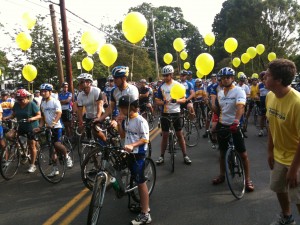 July 26, 2009
July 26, 2009
The riders lined up along the narrow street, more of them this year than last. The streets were still damp. At the first corner of the course, a large puddle remained from the previous night’s storm. Volunteers handed out yellow balloons to cancer survivors; the balloons danced and tugged at their strings, waiting for release.
The cyclists waited along the street, some joking, some quiet. Some looked up at their balloons, remembering. Some looked at the backs of the jerseys of their fellow riders, mentally noting how many survivors there were among them. As the announcer droned on about the course, ensuring that the 75 and 100 mile riders had maps, we all breathed deep breaths, psyching ourselves for some of the emotional moments about to occur.
An 11 year-old girl sweetly and strongly sang the National Anthem. Then the announcement came to release the balloons. The announcer said this bike event was for us, that it was in our names the riders were going. We let the balloons go and watched as they floated into the sky. Everyone clapped, some tears were shed. If only we could erase the pain that we’d had as easily.
And then it was time for the Survivor’s Lap of Honor. Any cancer survivor who is riding in the Connecticut Challenge takes an honorary lap around the starting area to be recognized before the official start of the event. Some of the cyclists are riding during treatment, some of them during chemo. How they get on a bike and ride I do not know. At the front of that pack of Survivors is my friend Lucas Whittaker. At age 11, Luke is the youngest cancer survivor at the Challenge. As such, he receives special notice and leads the pack.
Luke has beaten leukemia twice. When they announced his name and he started off on his lap of honor before starting his 25 miles, his father Martin (about to start his grueling 100 mile course which he rides every year in Luke’s honor) turned around to me, his eyes full of tears, and we sobbed, holding each other for a minute. “Your beautiful boy,” I said. “Look at your beautiful boy.”
He knew I understood. What this disease had done. How it had challenged them — his family. When Luke relapsed, it was a bone marrow transplant from his younger sister Grace that saved his life.
Luke’s mom, my dear friend Brenda, made her way over from where she was standing with their other children. She and Martin hugged and then she and I did too. We don’t even say anything anymore. We just hug. And sometimes we do the thing where our bodies just shake together as we silently sob.
And then we parted, and looked at each other.
And we knew: you can’t let yourself grieve or feel or cry anymore after that.
You’re going to have to take an IOU on loss for now, because there’s work to be done.
There’s business to be done — the business of living.
We turned back to the children. Back to Luke. And Martin. Back to my own children who had come to send off the riders. And the race got started. We wiped our tears and we cheered. We watched as every last rider pulled away. And then Brenda and everyone else walked toward the tents. And I stood for a moment, and cried a bit more. And then I realized the kids needed me. Again, the feelings would have to wait.
We made signs for the people we know who have had cancer. Volunteers take these posters and attach sticks to them; then other volunteers post them along the course for the riders to see as they make their way home. The list of people we know who have been touched by cancer was long. We made a sign for my friend who just got diagnosed with cancer ten days ago. One for our next door neighbor Catherine who is in remission from leukemia. My beautiful brave girlfriends who are in remission from breast cancer. My spectacular mother (also in remission from breast cancer) who is my continuing role model on how to charm the world with a smile. Paige made a special sign for Luke. Colin made one just for me that said In honor of Mom on it.
There was a cyclist who had MOM written in Sharpie pen on his leg. I couldn’t figure out why he had written it in the precise manner and location he had. All day I was thinking about it, and I couldn’t figure it out.
Last night after I drove the babysitter home, I was pulling into my driveway and it hit me:
he’d written it where he could see it when he was on the bike.
He wanted to see her name when he looked down.
When he got tired and looked down and needed strength on a hill or along the route,
he would see “Mom” written on his leg in this neat block font and think of his mother.
I don’t know if she’s living with cancer or if she died from it, but that image will stay with me.
That son, riding his bike 100 miles yesterday, thinking of his mother when he was pushing his body to the limit.
The business of living: that’s what yesterday was all about.
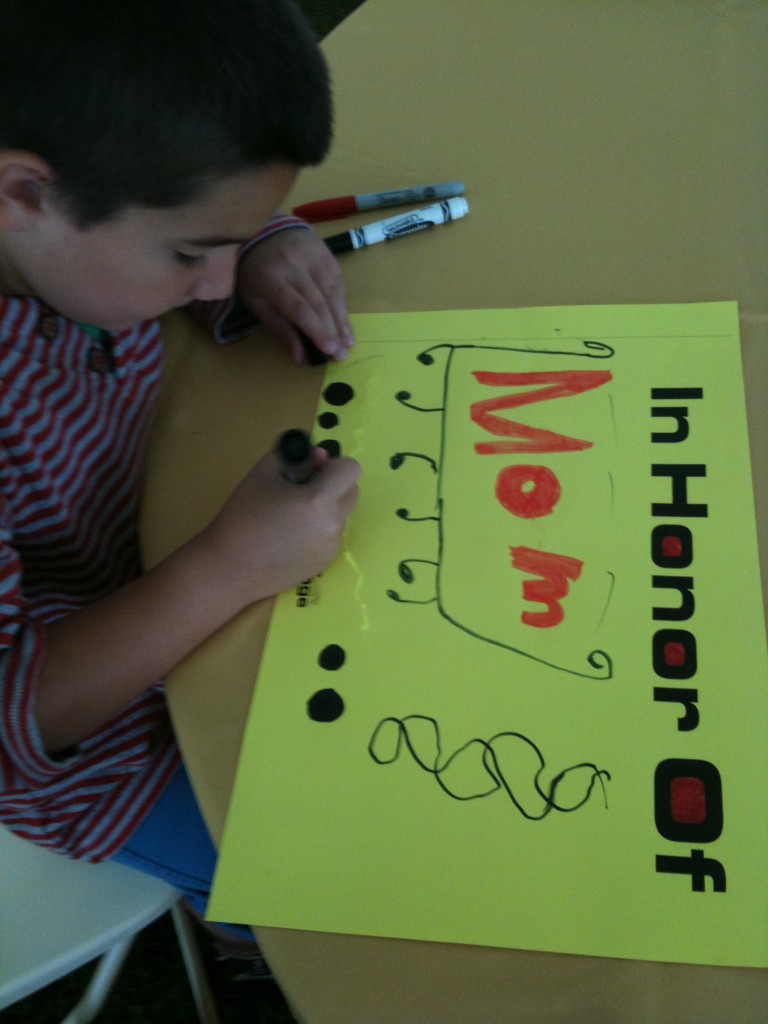
January 12th, 2011 §
That chair you’re sitting in?
I’ve sat in it too:
In waiting rooms. Chemo rooms. Prep rooms. For tests. Surgeries. Procedures. Inpatient. Outpatient. Emergency visits. Routine visits. Urgent visits. To see generalists. Specialists. Surgeons. Alone. With friends. With family members. As a new patient. Established patient. Good news. Bad news. I’ve left with new scars. Prescriptions. Appointments. Words of wisdom. Theories. Guesses. Opinions. Statistics. Charts. Plans. Tests. Words of assurance. More bloodwork. Nothing new. Nothing gained. Nothing but a bill.
That feeling you’re having?
I’ve had it too:
Shock. Disbelief. Denial. Grief. Anger. Frustration. Numbness. Sadness. Resignation. Confusion. Consternation. Curiosity. Determination. Dread. Anxiety. Guilt. Regret. Loss. Pain. Emptiness. Embarrassment. Shame. Loneliness.
That day you’re dreading?
I’ve dreaded it too:
The first time you speak the words, “I have cancer.” The first time you hear “Mommy has cancer.” The day you wear a pink shirt instead of a white shirt. Anniversary day. Chemo day. Surgery day. Scan day. Decision day. Baldness day. The day the options run out.
Those reactions you’re getting?
I’ve had them too:
Stares. Questions. Pity. Blank looks. Insensitivity. Jaw-dropping comments.
Those side effects you dread?
I’ve dreaded them too:
Nausea. Vomiting. Pain. Broken bones. Weakened heart. Baldness. Hair loss. Everywhere. Unrelenting runny nose. Fatigue. Depression. Hot flashes. Insomnia. Night sweats. Migraines. Loss of appetite. Loss of libido. Loss of breasts. Phantom pain. Infection. Fluid accumulation. Bone pain. Neuropathy. Numbness. Joint pain. Taste changes. Weight gain. Weight loss. Some of them happen. Some don’t. Eventually, though? You name it. It changes. Temporarily anyway.
That embarrassment you’re feeling?
I’ve felt it too:
Buying a swimsuit. Getting a tight-fitting shirt stuck on my body in the dressing room. Having a child say “You don’t have any eyebrows, do you?” Wearing a scarf. Day after day. Wondering about wearing a wig because it’s windy outside and it might not stay on.
That fear you’re suppressing?
I’ve squelched it too:
Will this kill me? How bad is chemo going to be? How am I going to manage 3 kids and get through it? Will my cancer come back and take me away from my life? Will it make the quality of life I have left so bad I won’t want to be here anymore? Is this pain in my back a recurrence? Do I need to call a doctor? If it comes back would I do any more chemo or is this as much fight as I’ve got in me? What is worse: the disease or the treatment?
That day you’re yearning for?
I’ve celebrated it too:
“Your counts are good” day. “Your x-ray is clear” day. “Now you can go longer between appointments” day. “See you in a year”day. First-sign-of-hair day. First-day-without-covering-your-head day. First taste of food day. First Monday chemo-isn’t-in-the-calendar day. Expanders-out, implants-in day. First walk-without-being-tired day. First game-of-catch-with-the-kids day. First day out for lunch with friends day. First haircut day. “Hey, I went a whole day without thinking about cancer” day. “Someone asked me how I’m doing, I said ‘fine’ and I meant it” day.
That hope you have?
I have it too:
No more cancer.
Don’t you think that would be amazing?
I think so too.
January 10, 2010
January 11th, 2011 §
June 18, 2010
There. I did it.
This picture shows me one month after I finished chemo. Peach fuzz growing. Eyebrows gone. Eyelashes gone. Both pencilled in to hide their absence.
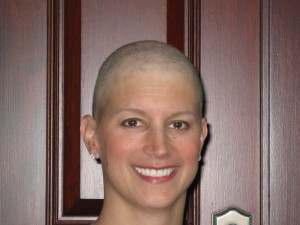 This is the only picture I have of myself bald. When I was a shiny cue ball it never occurred to me to document it. If you look closely at my left eye, you’ll see a tear resting on my lower lid. I had just stopped crying. Long enough to put on makeup and flash that killer smile. I was just about to get my tissue expanders out and have my silicone implants put in. It was right before my 38th birthday. That’s what I told my plastic surgeon I wanted for my birthday– to be done with that next phase of my reconstruction.
This is the only picture I have of myself bald. When I was a shiny cue ball it never occurred to me to document it. If you look closely at my left eye, you’ll see a tear resting on my lower lid. I had just stopped crying. Long enough to put on makeup and flash that killer smile. I was just about to get my tissue expanders out and have my silicone implants put in. It was right before my 38th birthday. That’s what I told my plastic surgeon I wanted for my birthday– to be done with that next phase of my reconstruction.
It was hard to go in for that particular surgery at that particular time in my treatment regimen. When the staff came to wheel me in I had to remove my scarf. My surgeon hadn’t seen me bald. The nurses, my father, my doctor… all of them saw my head then. Of course it was run of the mill for them. They saw cancer patients all the time. But for me it was another way my dignity, my identity, my humanity were being stripped from me. I donned the fabric shower cap gladly, happy to have something (albeit flimsy) to conceal my naked head.
Only moments before, I stood in the bathroom with my plastic surgeon while he marked my body once more with his ubiquitous purple Sharpie pen. We talked again about final details of my breasts. I realized how these conversations had become so routine between us. While the subject of my breasts was no longer one that even caused a pause in chatter for us, I didn’t want him to see my head. Somehow it was more personal, more private, more embarrassing to me than the fact that he not only saw, but touched, drew on, and even photographed my breasts on a regular basis during reconstruction. Those interactions were scripted. Defined. But my head? I hadn’t realized he was going to see that. And there was embarrassment there. It wasn’t happening on my terms.
So today I am taking control and doing it on my terms. When Melissa Etheridge performed bald at the Grammys in 2005 (before I was even diagnosed) I remember thinking, “She is strong. She is real. She is brave. She is beautiful.” What she did in that moment was important. I bet it was liberating to her. So I’m going to try it. It’s too late for me to try it in reality (and I don’t want to pull a Britney Spears and shave my new hair off to be bald again).
Today is the 2 year anniversary of the day I finished chemo. So, in celebration, I’m taking off my metaphorical scarf. I’m going bald here today. I want to see how it feels.
January 10th, 2011 §
January 30, 2009
I had two surgeons that day:
one just wasn’t enough for the job.
The surgical oncologist would take away,
the reconstructive surgeon would begin to put back.
Before I headed off into my slumber,
I stood as one marked me with purple marker.
He drew,
he checked,
he measured.
And then a laugh,
always a laugh to break the tension:
Surgeons must initial the body part to be removed to ensure
they remove the correct one.
But what if you are removing both?
How silly to sign twice,
we agreed.
And yet he did,
initialing my breasts with his unwelcome autograph.
The edges of the yellow fabric measuring tape he used
had purple fingerprints up and down their sides;
use after use had changed their hue.
And now it was my turn to go under the knife–
a few more purple prints on the tape.
I got marked many a time by him that year.
Endless rounds of
purple dots,
dashes,
and lines
punctuating my body
with their strange, secret blueprint
only those wearing blue understood.
We stood in front of mirrors
making decisions in tandem
as to how my body should and would take new shape.
Two years today and counting.
Moving forward.
Sometimes crawling,
sometimes marching,
and sometimes just stopping to rest
and take note of my location.
Numb inside and out,
but determined.
Grateful,
hopeful,
often melancholy.
Here comes another year
to put more distance
between
it and me.
Let’s go.
January 7th, 2011 §
I’ve referred to Judy Clement Wall’s blog a few times… on Fridays she does a wrap-up of things she’s read and seen and thought about during the week. This week she found a YouTube video clip on “11 Words for 2011” and gave her own. I have many serious topics to write about soon, but first I decided to join Judy in doing my 11 words. I would love to hear yours: it literally only takes a minute or two. A while ago I did an alphabet and loved doing that exercise too. I bet it will be interesting to look back on them at the end of the year.
Not sure if these are supposed to be wishes, or hopes, or the first thing that pops to mind.
1. cancer
2. hope
3. health
4. love
5. friends
6. Twitter
7. books
8. blog
9. family
10. coffee
11. smiles
That’s what came to mind… how about you?
December 30th, 2010 §
 We are at my father-in-law’s house in Wyoming at the moment. On Wednesday morning, ambulances and emergency vehicles started arriving down the street. An EMT soon came to our driveway and said to one of our family members, “We have a lot of sick people. Can we use your garage for triage?” She of course said yes. “There’s been carbon monoxide poisoning,” he said, and returned to the scene.
We are at my father-in-law’s house in Wyoming at the moment. On Wednesday morning, ambulances and emergency vehicles started arriving down the street. An EMT soon came to our driveway and said to one of our family members, “We have a lot of sick people. Can we use your garage for triage?” She of course said yes. “There’s been carbon monoxide poisoning,” he said, and returned to the scene.
Nothing happened for a while. We saw lots of vehicles arrive but didn’t see any ambulances leave with patients. Maybe it was a false alarm, we thought. We hypothesized what could have happened, how many affected people there could be. It was a brand new house, only occupied for a month or two. I’d seen a heating and cooling truck on the street an hour before; could that be related?
The emergency workers came back. “We need space to have them come inside and warm up,” one said. We readied the house, clearing space on couches, chairs, made sure we had mugs for warm drinks. Then we waited.
Eventually they started a slow and dazed parade the few hundred yards from their house to ours; one of the first was a young girl with blonde hair who looked stunned. She had snow-covered outerwear on. I asked her if I could help her take it off and if she was scared. She nodded. I reassured her that she was safe, everything was going to be okay. In the way that children do, she bounced back quickly, playing with a puzzle within minutes and laughing.
The grandparents, however, sat on one of the couches with oxygen masks on. They looked confused and pale. Each family member had a color coded tag with their carbon monoxide level on it. Fourteen family members had been in that house. The owners of the house had a few of their children and some grandchildren there for the after-Christmas break. They’d arrived to cold temperatures and cranked up their new heating system, all propane-generated. The heat didn’t seem to be working right. It cycled on and off quickly, wasn’t generating enough warmth for the large house. They’d used the secondary heat source– radiant heat in portions of the house (also propane-generated).
By Tuesday night some of the people in the house were vomiting, complaining of bad headaches. Of course, at high altitude headaches are common, especially after first arriving in town. Symptoms were dismissed as common illness, aftermaths from travel. The next morning, however, by the time the heating repairman was due to arrive, some family members were lethargic, having trouble getting out of bed in the morning.
The repairman arrived at the address expecting a commonplace heating issue. The second he stepped inside the house, however, the carbon monoxide detector on his belt loop began chirping. “You’ve got a carbon monoxide issue,” he told them, “get everyone out of the house NOW and call 911.”
The pieces fell into place… the headaches, vomiting, lethargy. Those in bedrooms closest to the boiler room were more severely affected. Usually infants, pregnant women, those with respiratory trouble, and the elderly can be more severely affected. And so, the fourteen family members and dog left the house that had been slowly poisoning them with toxic air.
Carbon monoxide binds with the hemoglobin in the blood more quickly than oxygen, making the hemoglobin unable to carry the oxygen the body needs. Without oxygen, of course, tissues start to die and eventually death will occur. Breathing pure oxygen after exposure takes the half life of carbon monoxide from 320 minutes to 80 minutes. The CO will be replaced with the oxygen it needs and poisoning will stop.
The medical team kept re-testing everyone using an oxygen saturation monitor (inserting a finger into a clothespin-shaped device, also known as a pulse-ox, or pulse oximeter). As the minutes and hours went by, their numbers came down. Some of them had gone straight to the hospital, others would later go to be double-checked after questionable readings or because of their age. At the hospital, blood tests are also used to check the percentage of hemoglobin that is CO.
Smokers will have a higher baseline percent than non-smokers because they have carbon monoxide in their blood as a side effect of smoking. The triage team had a tag for each person, recording each person’s current measurement. The cards looks like large luggage tags and had red, yellow, and green stripes indicating danger and safety zones. Those with higher levels would have to go to the hospital for monitoring. We kept the dog here while they went, still stunned at the turn of events.
They told the owner he wouldn’t be allowed back in the house. The repairman had his own level checked, and hypothesized about the cause of the problem — improper installation or blocked venting, most likely. “You won’t be able to go back in,” he told the owner. “We don’t want to,” the owner said through his oxygen mask.
I sat across from the owner. “Did the monitors malfunction, too?” I asked, curious how this brand new house could have been the location of such a dangerous situation. “The house doesn’t have carbon monoxide detectors,” he said, shaking his head. “The whole house runs on propane.” No one had told him he should have the detectors.
And so, that is the lesson I wish to share here today. Read about carbon monoxide. Educate yourselves about what conditions in your house can cause the toxic gas (the list of causes is more extensive than what I knew). Get carbon monoxide detectors installed, either by doing it yourself or in combination with your alarm system. Newer, self-intalled ones have batteries that last up to 7 years and units cost between $20 and $80 each. Placing them near your bedrooms is best.
Some people mistakenly believe that because they have smoke detectors they are protected from CO poisoning. This is not the case. The detectors are separate and detect different things. You need both.
Carbon monoxide gas is particularly pernicious because, unlike smoke, it’s not detectable by sight or smell. You won’t know it’s there. It can make you drowsy enough to go to sleep and never wake up.
Different states have different statutes about the installation of detectors in new dwellings. For now, it’s not national law. This means it’s up to you to protect your family. Each year reminders go out during daylight savings to check the batteries in your smoke detectors. Please allow me to use this space to ask you to go buy belated holiday gifts for your family: carbon monoxide detectors. It could be the best thing you ever do.
The family across the street was lucky: everyone will recover. There is still danger of long-term health effects from the exposure, but they are all alive, including their pet. They were lucky. But each year 400 Americans die, 20,000 visit emergency rooms, and more than 4,000 are hospitalized from carbon monoxide poisoning.
Please don’t be one of them.
** A few days after I posted this piece we saw the homeowner. He reported that the family was able to return to the house after the cause was identified and a temporary solution had been made. They discovered that the heating vents were blocked by extensive snow (2 feet) on the roof and chimney. The heating company has made a temporary pipe system to shunt the vapors outside. Also, they’ve installed eight CO detectors throughout the house. Given the extensive snowfall this year in the Northeast, it’s important to see how extreme weather can pose unforeseen dangers.
December 28th, 2010 §
There isn’t anything magical to me about 12:00 A.M. on Saturday when 2011 arrives.
Sure, you may have made some resolutions or more informally said to yourself that “things will be different in the new year” but chances are, they probably won’t.
The concept of liminal time is one I learned in graduate school when I took many graduate classes with Eviatar Zerubavel. Professor and author of many books in cognitive sociology, Zerubavel used The Fine Line: Making Distinctions in Everyday Life to explore the ways in which we create mental boundaries where no clear ones exist for the purpose of keeping life ordered. That is, we artifically make distinctions where they may not exist, or their empirical boundaries are far fuzzier. For example, while “life” and “death” may seem discrete, polar opposites, public debates over when does life begin? (conception, birth) and what constitutes the end of life? (brain death) are, of course, far more controversial. At first glance the question Is it alive or dead? seems deceptively simple.
And so while “clean breaks” and “fresh starts” for the new year sound lovely, in essence there is no reason to believe that just because the numbers 2011 are attached to something will necessarily mean a life different than 2010. While taxes and health insurance may get reset on January 1st, the financial situations and health statuses that carry over from December 31 are unlikely to be very different once the metaphorical calendar page has been turned.
Years ago, of course, the calendar was real, and so was the page. We purchased new datebooks and the clear, fresh pages symbolized the new start we would have. While some maintain this tradition, others (like me) have abandoned the tangible book-style calendar for the electronic one. The same swipe which turns us from December 30 to 31 takes us from 2010 to 2011. The joy of the trip to the stationery store to pick a new datebook is gone for me. My new year begins without effort.
We like to think a new year will bring new things. We hope it will mean the end of unpleasant situations in our life. We often make resolutions to help ensure that old habits will not be repeated. But there’s a reason gym attendance falls off sharply in February and March as enthusiasm wanes and old habits resume.
This isn’t to say that changes can’t be made. This news should not be considered depressing. On the contrary, the message is to say that they can be made any day, at any time. Perhaps the new year is easier to designate as the “fresh start.” But in the realm of cognitive sociology, there is no reason to expect that 12:00 on January 1st, 2011 will be any different than 11:59 on December 31, 2010.
So use the new year as a starting point if you must, but keep in mind that any day of the year will do. It’s easy to say 2011 will be better or different. But in my mind it’s just another day, dealing with the same things as any other. And thinking it’s going to be different or better only serves to set myself up for disappointment if it’s not.
How about you: In your experience is thinking about the new year as new helpful? Do you make resolutions? Do you stick with them? Do you prefer to make resolutions and fail rather than not make them at all?
December 25th, 2010 §
My parents, on their honeymoon, in 1961:
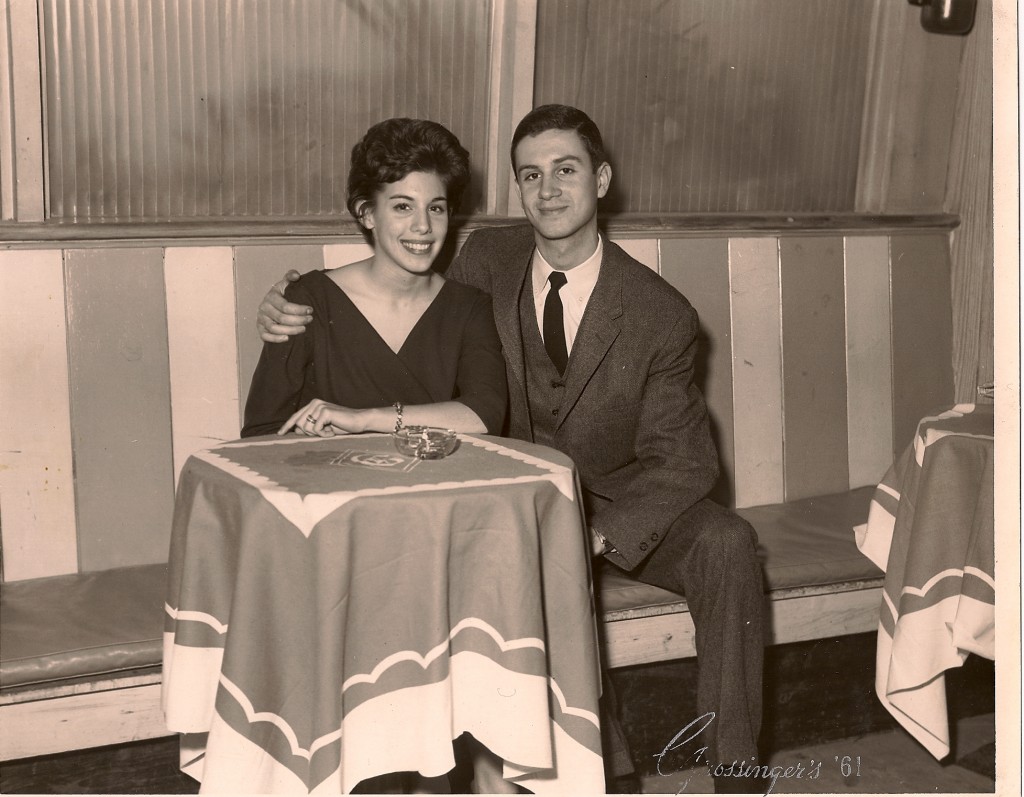
On October 24, 2008 the Bonchek College House at Franklin and Marshall College was dedicated. The building is a dormitory and part of the new residential system at my alma mater. On that night I stood and spoke about my parents; I wanted to show the personal side of these two wonderful people.
It was easy to write about my parents. They are both unique and talented individuals, and it is with great pride that I introduce them here to you. On Christmas Day, forty-nine years ago my parents were married. Staying married for forty-nine years is an amazing accomplishment; however, it is only one of the many ways my parents have been role models for me.
I struggled with how to honor my parents and their anniversary. Of course, the best way I know how is in writing. I re-read the speech I gave at the dedication and decided to share it here in honor of their special day. Mom, Dad… I never forget how lucky I am. I never forget what you have given me both in sacrifice and by example. It really is an honor to be your daughter.
Here is the text of the speech I gave, as it was written:
On Halloween night 17 years ago, my life changed. On that night, my best friend Alex Welch and I attended a costume party at Chi Phi Fraternity, right down the street. On that evening, she introduced me to a Senior on the swim team, Clarke Adams. Coincidentally, he had lived in South Ben during his time here, and we hit it off instantly.
Six years later, we were married here on campus in Nevin Chapel. It really does feel like things have come full circle to be here with my parents and my family to see our family name here on this building.
F&M obviously holds a special place in my heart for the people I met here. Franklin & Marshall also nurtured my mind as well. My education here, particularly the dedicated instructors in the Sociology department… Carol Auster, Joel Eigen, Katherine McClelland, and Howard Kaye, along with many others, really pushed me not just to learn, but to think. And if you know how to think, you can learn anything.
One person here really touched my mind and heart and though he’s miles away I would like to mention him. Professor Joel Eigen, my friend for 20 years, is away on sabbatical in Australia. As a high school senior here in Lancaster, I took one’s of Joel’s sociology classes. I then went on to Cornell University where I realized that the experience I had in Joel’s classroom really was true education, and I didn’t want to waste my remaining college years without that.
I transferred here for my last 2 years and worked with Joel as research assistant. He was a professor, a mentor, and a friend– all of which are still true today. I was in touch by email with him early this morning and told him how much he exemplifies the nurturing of the mind and person that happens here.
This coexistence of the head and heart applies not only this fine institution, but also to that of my own personal faculty– my parents.
My father, as those of you who know him can imagine, focused first and foremost on training my mind. At every opportunity, my father has been– and is– a teacher, an instructor, an educator.
When I asked my daughter Paige what she thinks of first when she thinks of Grandpa she said, “How long his answers are when you ask him a question.” That is certainly my father.
What her comment shows is that my father prizes knowledge– rational knowledge in particular. He takes the role of parent as a teaching one. He did this when I was 3, and he still does it now that I’m 39.
Now as a grandfather to 5 grandsons and 1 granddaughter, he still uses every opportunity to inform others. He is brilliant on a wide range of topics. He is, quite simply, the smartest person I know. He is also a clear and thoughtful writer and editor.
But what you may not see evidence of as easily is my father’s tenderness, his kindness, his softness. The experiences of the past two years have brought me evidence time and again how supportive, how giving, how dedicated my parents are, and given me countless opportunities to see the gentle side of my father.
I spoke at the outset about how my life changed when I met Clarke here all those years ago. Almost two years ago my life changed again when I was diagnosed with breast cancer. When I found out I needed chemotherapy as part of my treatment, my parents came to Connecticut for each round. They took care of not only the day-to-day parts of child care, but also the love and nurturing of my children that I could not do in the way I was used to.
On the morning of my second round of chemo, my hair began to come out in clumps. I had been waiting for it to happen, and I was ready. With the same electric clippers I used to cut my two sons’ heads, I went into the garage and started shaving it off. But I could not reach the back properly. I came in the kitchen and asked him to help. With quiet and serious strength, my father finished the job for me.
In my darkest moments, my most painful and distressful ones, it was often my father’s comfort which was the most touching. And when I think of the last 2 years, I am lifted in large part by the love and tender care my father has given to me.
He came to every doctor’s appointment. He changed my bandages after my surgery. And in a true display of love and confidence, he trusted me to make all of the medical decisions myself, and never told me what to do.
Dad demands the best from those around him. He inspires others to want to do their best in his presence. But for those like me who know him well, we know that his serious exterior hides a sensitive and loving father and grandfather. I feel fortunate to have him “on my team” and for the loving relationship we have today now that I am grown. No matter how old I get, though, I will always be his little girl.
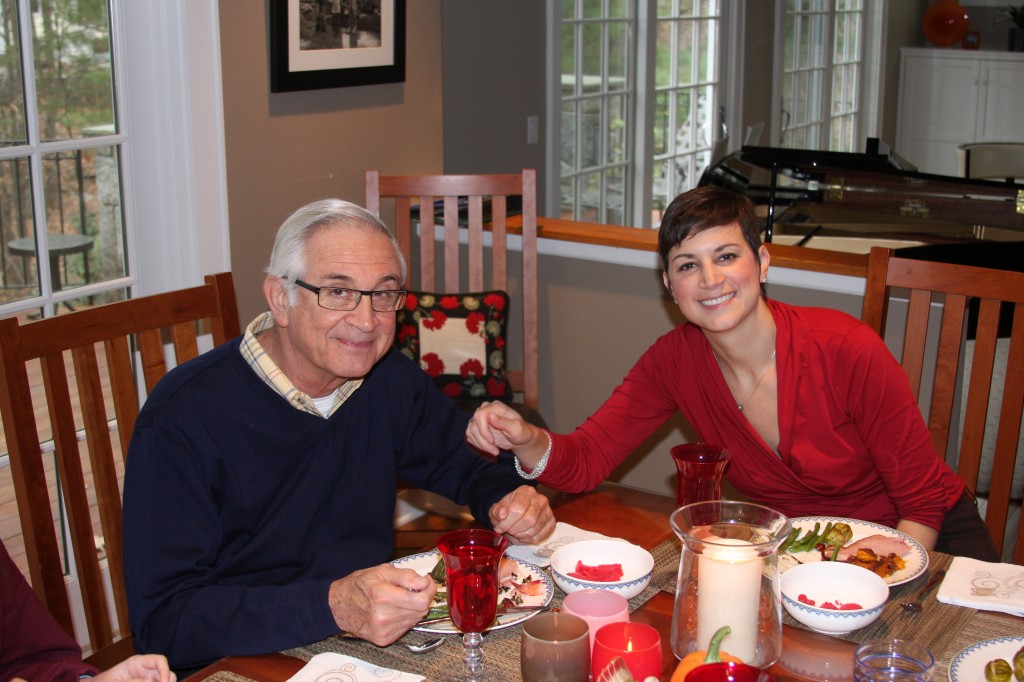
My mother’s public and private selves, on the other hand, have always been more congruous than my father’s. My mother is a softie through and through. It’s easy to see why he chose her to be his life partner. In addition to her selfless nature, she is smart, insightful, funny, supportive, and most of all, patient. My mother and I have a wonderful bond, a great connection. To this day when we say goodbye to each other at the end of a visit, we can’t look each other in the eye because we will both start to cry. Even now you will notice I am carefully avoiding her gaze.
We try to be strong for each other, but we don’t always do a good job. Our biggest problem is that we try to protect one another from harm, from trouble, from stress. My mother has often been overshadowed by my father’s strong presence. But those who have had the gift of her professional advice as a psychologist over the years know that she is a talented therapist and a caring listener. Quite simply, to know my mother is to love her.
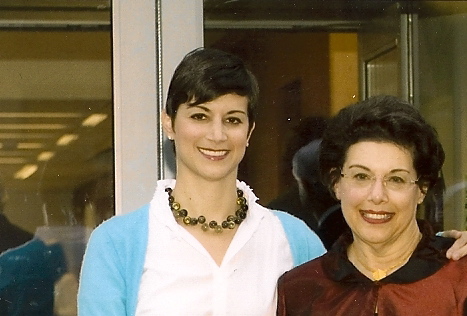
My parents have taught me great lessons. About moral standards, about confidence, about sharing the rewards of hard work. These are lessons my husband Clarke and I share with our three children. I never could have dreamed that on that night 17 years ago I would be here today, with my family celebrating this building and the people who made it possible.
Speaking about one’s parents is not hard– my brother Mark and I have been talking about my parents behind their backs for our whole lives.
On the other hand, speaking about one’s parents in their presence is a different story altogether. Rarely are we given the opportunity to compliment them in a public forum while they are still alive. I am thankful to have that opportunity today.
A good education provides a strong foundation for a person’s head and heart. A liberal arts education here at F&M nurtured my whole being, and allowed me to emerge with a stronger sense of self, of who I was in the bigger picture.
Similarly, my parents nurtured both my mind and my soul to instill the importance of education, of giving back to one’s community, and an appreciation for the role that social interaction can have on transforming the individual. The Bonchek College House is a perfect legacy for our family.
In closing, I would like to let you know that the Bonchek College House really is a dream come true for my family. After all of these years, we finally have a group of people consistently spelling our last name correctly…
I love you both.
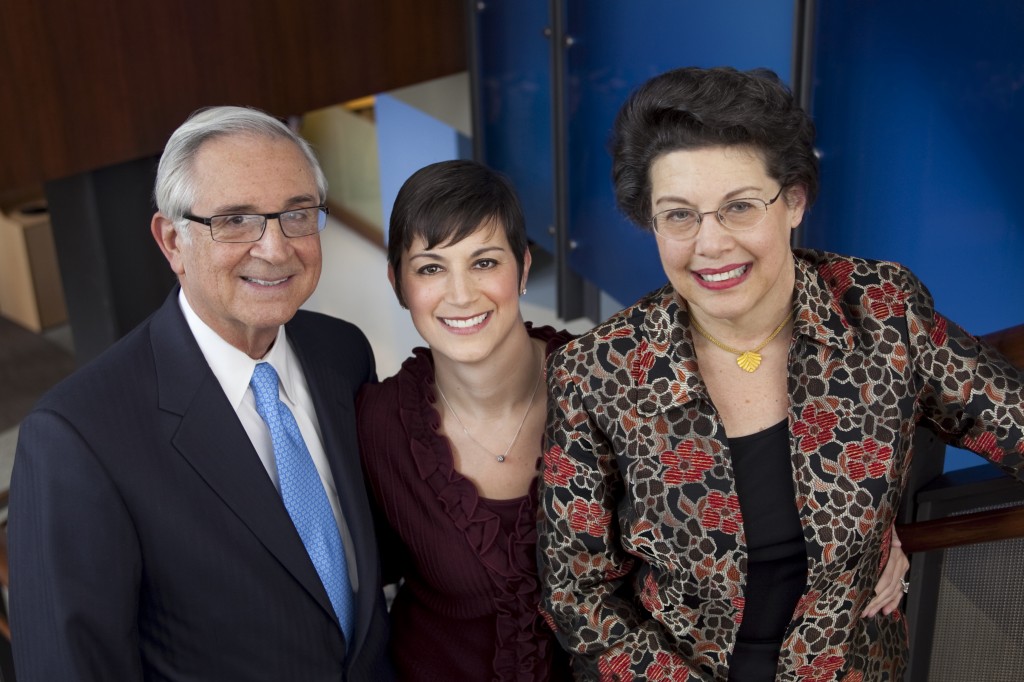
………………
So, congratulations, Mom and Dad, you made it to 49 years. Here’s to many more.
xoxo
December 24th, 2010 §
Originally written December 25, 2008
(three weeks after my salpingo-oophorectomy and two years after my diagnosis of breast cancer. This was actually the first blogpost I ever wrote.)
I’ve only cried once today. That’s not too bad. But the day is not yet done. Today, again, I’m thinking of the things that cancer has taken from me. First, let me say that I am well aware of the blessings I have. I remember them each and every minute of every day. They are what keeps me going, keeps me fighting. But today, again, I’m pulled into what’s gone, what’s irretrievable, what’s changed.
The body parts are gone, of course. My feeling of immortality. Of safety, of security. I’m vulnerable now. And I feel it. Part of me wants to blaze down I-95 at 100 miles an hour because I’ve stared down cancer, so what can touch me now? Taking risks is a popular grief reaction. On the other hand, a part of me wants to curl up in bed and not come out.
Today, on Christmas, when the childlike wonder is all around, I feel like I am watching it from high above me, as it happens TO ME, around me. I smile, I do what I am supposed to do, I play the “Santa game” with my children. I eat delicious food. I gather up the gift wrap strewn about the living room. I pile the presents in the kids’ rooms. I pack their suitcases for their 3:30 a.m. wakeup for their winter vacation. Half my family is leaving me tomorrow. They’ll be back, of course, but they are leaving. And while they are gone I will ponder the sadness that has settled like a cloud since my latest surgery almost a month ago.
I know I’ll be fine… everyone tells me so, as if to will it to be that way. Even in my darkest moments I know it is only temporary. But I am angry at cancer. Angry at the bad twist of fate that makes me unable to travel this year, unable to be myself, unable to shake this feeling that the dark cloud just seems to keep following me, like those creepy paintings in the museum whose eyes seem to follow your every move.
And knowing the other people who are similarly sad today, those who are remembering loved ones lost, and those who are suffering in pain, and those who will head in for more chemo and surgery and therapies before the year is out are also forever changed by the great equalizer of cancer.
To anyone who reads this and thinks it sounds so odd, so foreign– something that happens to “someone else”… I am so happy for you. I am jealous of you. I remember that feeling, but I am almost getting to the point where I am unable to remember it. I never thought it would be me thinking this way, feeling this way. But it is me. And it’s taking a long time to grieve for that life I thought I would have.
Maybe that’s what it is.
I’m in mourning.
I’m mourning the life I thought I would have.
And only time can help that.
December 20th, 2010 §
Four is just a word. So is three. But once again today I will change one word on the welcome page of my website.
“It has been three years since hearing the words ‘You have cancer,'” the first sentence says.
And now, today, it becomes four.
I think about days like the one four years ago — days that start innocently, normally, benignly. In the hours leading up to the mammogram I wasn’t worried about anything.
I think about the sentence that changed my life.
I think of where I’ve been, where I am, where I am going.
I think of those I’ve met along the way: new friends, doctors, nurses, strangers.
I think of those who have died from cancer and other causes since I was diagnosed.
I think of the progress we’ve made and the distance we have yet to go.
I think of what today might bring, and tomorrow.
And then, in a sudden reversal, I stop myself from thinking too much.
“It’s time to go live my life,” I tell myself. Thinking is good, but only so much.
“It’s time to go live my life,” I tell myself…
Right after I change that one word.
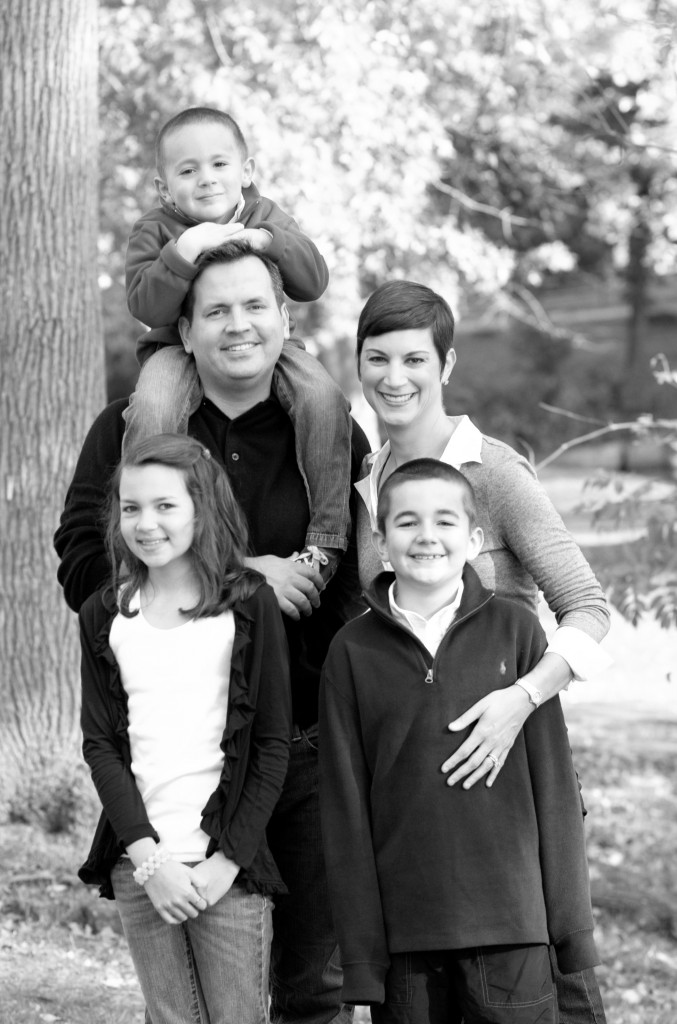
To read about the chronology of my diagnosis, go here.
December 20th, 2010 §
Originally posted March 11, 2010 on www.lisabonchekadams.com
In the wee hours of the morning yesterday I gently nudged Tristan from his deep slumber. At 5:15 we were in the car, headed out for the 2.5 hour drive to Philadelphia’s Shriners Hospital to see his hand surgeon.
These trips are always big ones to me. In the first two years of Tristan’s life we focused on his neck problems. With most of his cervical vertebrae only half-formed or fused together, we knew that we’d be told at these visits whether the curvature in his neck had worsened. At one point we were right on the border of intervention. He’d reached the maximum degree tilt of his head; if it went any more, he’d have needed surgery to insert rods and fuse his vertebrae together to straighten the neck permanently. It would have been big.
To us.
But whenever we go to Shriners we see other kids with orthopedic issues. Some are very serious. The most serious. Because the hospital specializes in pediatric orthopedic problems it is a magnet for complicated cases.
It is always humbling to walk into Shriners. Literally to walk in. Many, many children are wheeled into the hospital, unable to walk. A little baby lay in her car seat without any visible problem. But I knew that her sheep-covered blanket hid an abnormality that had brought anxious parents here.
Tristan had his pre-op appointment. He loves his surgeon; Dr. Kozin has an amazing bedside manner and got right into a great chat with Tristan when my son boldly announced as the doctor walked in, “I burped! And then I shivered!” Gee, I was so proud.
We got all of the details about Tristan’s tendon transfer surgery at the end of the month. Because we didn’t need to see his spinal team or get any x-rays, we were able to be back on the road by 10:15 to come home.
Before we left I stopped at the soda machine. I let Tristan put the money in and press the Diet Coke button. A little boy approached and his father hovered behind, watching him.
“What’s wrong with your son?” he said in that way that people who wait in waiting rooms together say.
“He’s got problems in his neck and thumbs.”
The father announced, “Our son has 7 fingers.”
I looked down, expecting to see 7 fingers on one hand. Instead, he had a perfectly-formed left hand, but his right hand was crab-like, with a thumb and a pinkie, but nothing in between but a wide expanse. “He can do everything with it,” the father said, gesturing at the hand.
He was beaming. Beaming. He was so proud of his son, about 3 years old. And he should have been. While some people might have been sad, or ashamed, this father delighted in his son’s accomplishments and accommodations to his physical abnormality.
Children are so resilient: I say it all the time. My son has taught me so much, made me more observant, more aware of life in so many ways. I am thrilled that the most horrific diagnoses and prognoses we were told about his mental development did not come true. His problems are only physical.
Last night, my Twitter friend Kathleen said that a pediatrician had told her, “Kids think about the things they can do, not what they can’t.” I loved that. It’s true. When kids realize the things they can’t do, their concern is only to find a new way to do that same thing.
I love the folks at Shriners Hospitals. They do amazing work in their network of hospitals for orthopedic, spinal cord, and burn injuries on children. They do not take any money from patients for any services they provide. If they accept your case (judged only on the specific problem your child has, and whether they are uniquely suited to help fix the problem, not on economic status) you will never pay a cent for services. I can’t ever resist giving a plug for them because we appreciate their care so much.
We were lost and scared and seeking information when we found out about Tristan’s problems. We’d never heard of spinal fusion surgery and had no clue what we might be in for. To have a surgeon say, “I know what the problem is. I have seen other children with this. If it needs to be fixed I know how to fix it.” Well, those are the words you hang on to as a parent.
In the car on the drive home it hit me how tired I was. I nodded off while Clarke drove and heard Tristan saying, “I want to go back to see Dr. Kozin.”
That’s music to my ears. His ability to be in and out of hospitals, doctors’ offices, and deal well with anesthesia will all help him in his life. With a heart surgeon as a father, and surgeries myself that started at age 5, I’ve never known a time I haven’t been comfortable in hospitals. When I got cancer it served me well.
I wish Tristan hadn’t had these problems, but he does. This is his life. The more comfort I can instill in him about medical care, the better. I think it’s a wonderful life skill to have.
So we have a few weeks until the hand surgery… and then Tristan will get his wish and get to see his surgeon again. We’ll see how he feels about him afterwards…
(to read the next few chapters in Tristan’s hand surgery story please click here)
………………………………………………………………………………..
Original comments appear below
March 11, 2010
7 comments
Stonecutter099
I do a regular search for items on Twitter related to Shriners and by doing so came across your post about “Walking in, Walking Out”.
Thanks for posting this on your blog. I am a Shriner in Edmonton, Alberta, Canada. Posting stuff like this helps to keep Shriners active – knowing that there’s actual people out there with names, instead of being fed stats that the hospitals helped X amount of children last year and spent X amount of dollars. If they actually get to see the progress that you’ve documented, it means much more.
Hope you don’t mind – I’m now one of your twitter followers.
Thursday, March 11, 2010 – 03:17 PM
Sarah
Tristan is an amazingly strong boy. It obviously runs in the family!
Thursday, March 11, 2010 – 04:06 PM
cay0730
I love these posts about your family. As a childless 40ish person, I love this inner view on the parent-child relationship, and the bond of love that’s beyond anything I can imagine. While the decision was right for me, I honor and admire people who go to the ends of the earth to guide their children through every step of life–good and not-so-good.
Thursday, March 11, 2010 – 06:29 PM
mrswhich
I wish that Tristan and my son could be friends – he sounds like an amazing person. No need to wonder why.
Thursday, March 11, 2010 – 09:59 PM
Delia
Touching, thoughtful post! Wonderfully written!
Thursday, March 11, 2010 – 10:37 PM
Theresa
Your post so hit the mark on so many levels. You and I know that children are far stronger than us because we have seen them face problems that most adults can’t handle with such grace and dignity. I always try to remind people of that. When Catherine was diagnosed, I wondered how the doctors could do their jobs with a smile on their faces everyday. It didn’t take me too long to realize that their patients were an inspiration and they drew from that strength. I’m sure everyone at Shriners feels the same way.
Friday, March 12, 2010 – 08:11 AM
KCM
I second Sarah’s comment
Friday, March 12, 2010 – 01:14 PM
December 13th, 2010 §
Clarke and I attended a family wedding this weekend. One of his first cousins got married and my parents stayed with the kids while we drove to the event. Four of Clarke’s brothers and sisters attended and we were able to see many family members we hadn’t seen since the memorial service for Barbara a little over a year ago.
Barbara’s three sisters were there, of course, and one of her brothers. It’s a large family and we all have a great time visiting when we have occasions to see each other. It was fantastic to have a happy reason to gather; so often as we age it seems we only see each other to mourn.
And while we were happy, while we loved seeing a young bride and groom start their lives together, we couldn’t help but ache every moment for the special one who was not there. Barbara’s absence hung over the weekend. For the first time since she died I didn’t have to distinguish one “Mrs. Clarke Adams” from the other. We’d had the same name for the last 13 years and over the weekend I missed the confusion it often gave us at check-in time or seating assignments for dinner.
It wasn’t until the groom danced with his mother (Barbara’s sister) that the emptiness became overwhelming. This particular sister resembles Barbara the most: her eyes, her expressions, her hair. And as she danced with her son we all could not help but cry: my youngest brother-in-law, still in his 20s, would not have that dance with his mother when he gets married.
I talked about Barbara a lot this weekend; I couldn’t help it.
My anger is still here: she should be here enjoying these things. It is someone else’s fault she isn’t (see here for original newspaper piece and here for my piece about the court hearing). Somehow, to me, that makes it worse. Her body didn’t fail, she didn’t get a disease. Someone made an egregious decision and she paid the price with her life.
I’m not over that anger and I don’t think I ever will be. Every happy event is one we are not sharing with her. And while no one’s life can go on forever, when it’s taken without warning and too soon it takes time to adjust to. It’s too much to swallow in one gulp, and this bitter taste is dissolving very slowly. This weekend was hard. Christmas, which has always been synonymous with Barbara, is going to be even harder. I know there are many people reading this who are grieving losses this year, and the holidays are always difficult. My heart goes out to you all.
December 4th, 2010 §

The original 12 Days of Christmas is outdated and unrealistic. This is what you are more likely to get:
On the first day of Christmas the holiday gave to me a needle-dropping Christmas tree.
On the second day of Christmas the holiday gave to me two ear infections and a needle-dropping Christmas tree.
On the third day of Christmas the holiday gave to me three flight delays, two ear infections, and a needle-dropping Christmas tree.
On the fourth day of Christmas the holiday gave to me four lost suitcases, three flight delays, two ear infections, and a needle-dropping Christmas tree.
On the fifth day of Christmas the holiday gave to me… five extra pounds! Four lost suitcases, three flight delays, two ear infections, and a needle-dropping Christmas tree.
On the sixth day of Christmas the holiday gave to me six teachers’ gifts. Five extra pounds! Four lost suitcases, three flight delays, two ear infections, and a needle-dropping Christmas tree.
On the seventh day of Christmas the holiday gave to me seven batches of cookies, six teachers’ gifts. Five extra pounds! Four lost suitcases, three flight delays, two ear infections, and a needle-dropping Christmas tree.
On the eighth day of Christmas the holiday gave to me eight migraine headaches, seven batches of cookies, six teachers’ gifts. Five extra pounds! Four lost suitcases, three flight delays, two ear infections, and a needle-dropping Christmas tree.
On the ninth day of Christmas the holiday gave to me nine barfing cousins, eight migraine headaches, seven batches of cookies, six teachers’ gifts. Five extra pounds! Four lost suitcases, three flight delays, two ear infections, and a needle-dropping Christmas tree.
On the tenth day of Christmas the holiday gave to me ten mall trips, nine barfing cousins, eight migraine headaches, seven batches of cookies, six teachers’ gifts. Five extra pounds! Four lost suitcases, three flight delays, two ear infections, and a needle-dropping Christmas tree.
On the eleventh day of Christmas the holiday gave to me eleven loads of laundry, ten mall trips, nine barfing cousins, eight migraine headaches, seven batches of cookies, six teachers’ gifts. Five extra pounds! Four lost suitcases, three flight delays, two ear infections, and a needle-dropping Christmas tree.
On the twelfth day of Christmas, the holiday gave to me… twelve too-small sweaters, eleven loads of laundry, ten mall trips, nine barfing cousins, eight migraine headaches, seven batches of cookies, six teachers’ gifts. Five extra pounds! Four lost suitcases, three flight delays, two ear infections, and a needle-dropping Christmas tree.
November 24th, 2010 §
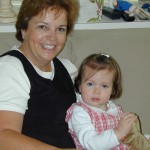 I have many friends who have lost family members this year. My own devastating loss, the death of my beloved mother-in law, was only 14 months ago. The death of someone you love is never easy, but I think holidays are particularly painful times. Not only do you miss the physical presence of the person, but there are often so many reminders of special times you have had together, of traditions you shared.
I have many friends who have lost family members this year. My own devastating loss, the death of my beloved mother-in law, was only 14 months ago. The death of someone you love is never easy, but I think holidays are particularly painful times. Not only do you miss the physical presence of the person, but there are often so many reminders of special times you have had together, of traditions you shared.
While we grieve for the physical absence of the person at our family gatherings or the telephone calls we share, what we also grieve is the loss of future time together. That is, we not only grieve the person we’ve lost, we mourn the future events that we will not be able to share with them.
I didn’t spend many Thanksgivings with Barbara; Turkey Day is almost always a holiday spent with my side of the family (Christmas is always spent with Clarke’s family). There were a few years my parents and in-laws both lived in Pennsylvania; back then Clarke and I were able to see both sides of the family in the same Thanksgiving weekend.
Barbara loved to set a good table; she always had special items on the table that had been handed down to her — china, silver, serving pieces. But more than any other Thanksgiving tradition, the one that I associate with her is Cranberry Ice.
Cranberry ice is a sort of cranberry sorbet, an icy, tart, frozen taste sensation. Perhaps originally an intermezzo, it evolved to take the place of traditional cranberry sauce at the table and now is eaten along side the turkey and fixings. Barbara always had special small cut-glass footed bowls to hold it; I haven’t yet found some of my own. Last year, in a loving tribute to her, I made my own cranberry ice for the first time using the food mill she’s put in my stocking years ago. The mill sat unopened in my cabinet until last year. I pulled it out and held it then, realizing as I held it that her own hands had held the package. She had shopped for it, paid for it, put it in my stocking. I touched that plastic container and all I felt was cold. Without her, it wouldn’t be the same.
My daughter (pictured above, ten years ago, with Barbara) will be staying home from school today recovering from oral surgery. I think it would be really nice to make the cranberry ice together, just the two of us, while the boys are at school. Traditions carry on, however painful it is.
It’s important to remember that while some will be complaining about their relatives while spending time together this week, some of us would do anything to have our loved ones back with us to share the day. I feel sure a bit of sensitivity to the emotional turmoil some may be experiencing would be welcomed by your friends or family members who grieve this week.
Every day is hard when you miss someone; a holiday is especially so.
November 21st, 2010 §
Never did we think we would share the bond of cancer. It’s certainly not something any mother wants to have in common with her child. And I know (now that I am a parent myself) that it must have been harder for her to hear MY declaration of cancer even more so than her own.
She was a trailbreaker for me. Like the sled that gets sent ahead to smooth and mark the trail of the Iditarod (I have dogsledding on the brain currently), my mother laid tracks for me. She was diagnosed a few years before I was, and I watched as she dealt with her illness. On her “off” weeks from chemo, when she felt well enough, she always came to visit. I think she needed to see some of her grandchildren and remember why she was going through the difficult treatments. She was Nana, she was Mom… she wasn’t a cancer patient.
I had never known anyone with cancer. I had never seen what happens to someone during chemo. And, to be fair, I only saw her after the worst was over. Just like I did, when the time came, she retreated to her bedroom during the worst days and kept it a private matter. But on those alternate weeks, I watched my mother’s head go bald. I watched her body go hairless. I watched her weaken, and suffer. I saw her remove her wig once the children had gone to bed and put on a green turban to finally give her head a break after a long day.
But I also saw something else in my mother. I saw the unfailing determination to be strong. I saw her desire to protect those around her. I saw her selfless devotion to family, and the importance of putting on a brave face. Most of all, I saw the smile. The gorgeous smile that lights up a room, always with bright red lipstick. My mother was extra beautiful to me in her display of courage, conviction, and unwavering persistence.
Neither of us knew that she was actually teaching me by example; within a year of her hair growing back in, mine would be coming out. We had no way of knowing we would soon start trading books, articles, and reports on advances in oncology.
I have learned many lessons from my mother. But for today, the one I am thinking about is one of the most valuable. You never know who’s watching you. You never know what’s around the corner. You never know when it’s going to be YOU… when it’s going to be your turn.
Trailbreakers are all around us. We just need to watch and pay attention. We need to learn lessons where we can. We need to have reserves we can tap into. Like a fallout shelter stocked for an emergency, we need to have people we can call on, experiences we can draw on to reassure us when crisis strikes. My mother did that for me. When it came to be my turn, I wasn’t ready; I wasn’t prepared. I wasn’t strong or brave or tough. But I did know I could get through it. After all, she did, and just knowing that fact helped me. I got tougher. I got braver. I got stronger. But having watched someone close to me go though some of the same experiences meant a lot.
I don’t think of myself as a role model. But I also know the reality: some of my friends will eventually get cancer. And I hope that my experiences can help them get through it, and see that it can be done. One reason I have decided to be so open and public about my life is that I wish I had been able to connect to someone my age, and hear what she had to say. Cancer’s impact on me– the changes in my life, my body, my relationships with my spouse, children, and friends– cannot be underestimated. Two years after my initial diagnosis, I still have lots to work through.
“If you want to know what the road ahead is like, ask someone who is on her way back home.” I have been there, and feel it’s my duty to tell what I’ve seen.
November 21st, 2010 §
Many of my friends are going through it. You know, it. The anomie that occurs for stay-at-home parents when their children become more independent and they are left at home wondering where that part of themselves, independent of spouses and children, went. “What do I do next?” they ask themselves. “Where do I go from here?” Often in limbo, not having enough time to get a full-time job or needing the flexibility for school vacations and afterschool hours, stay-at-home parents struggle to re-enter society with their (often) outdated skills, wardrobes, and knowledge base (the words to Wiggles songs do not count as expert knowledge).
I’m being spared this aimlessness because of my cancer diagnosis three years ago. My youngest child is 4, he’ll start kindergarten next fall. He has some physical issues, abnormalities in his hands and neck which mean I’ll need to spend more time dealing with the school system about his special needs. He’ll need physical and occupational therapies for the foreseeable future, but he’ll be in regular school from 8:30 to 3:00 every day.
Now that I am in remission my weeks are still full with doctors, managing side effects, and helping others going through the diagnosis and treatment process. But more often than not I’m at the computer writing. I’ve carved out something that gives my life meaning apart from my family. And while my cancer history has involved all those who know and love me, I still think of it as mine. My cancer. Why? Because as much as someone with cancer can try to explain what it is, what it feels like– what the cancer experience is— I am not sure we ever can fully succeed. Like trying to explain the love you have for a child to someone about to have their own child, you just don’t get it until it happens to you.
And so, the cancer is mine. And that possession is providing my step to the next phase of my life. I don’t wonder what I’m going to do with my time… I just wonder if I will have enough time to write all I want to write– if I can express for some who cannot express for themselves what this cancer experience can be.
October 27th, 2010 §
My last post (“These things are not wrapped in a pink ribbon”) was special. It was the hardest for me to post, the most personal. I said things in it I hadn’t shared with anyone; I described my feelings in my typical honest way. Readers loved it and embraced my effort. My heart soared.
I never want people to feel sorry for me– I don’t feel sorry for myself. I feel lucky. I live a great life now; I’ve had a great life so far. I’ve learned a lot along the way and gotten stronger and stretched myself in ways I could not have predicted.
Sometimes I wake up in the middle of the night panicked. The other night my worries about Tristan came to the surface. This week I have been working to get him additional physical and occupational therapy sessions from our town in preparation for kindergarten next year (if you don’t know about Tristan’s physical problems you can read about them here).
At 1:47 I lay in the dark wondering, “Who will care for this boy if something happened to me? What if I die — can anyone be his advocate the way I am?” I pondered that question for some time. I thought of the family in a documentary I watched two weeks ago called Monica and David. The film’s subjects have Down’s Syndrome and recently got married. They live in Florida with Monica’s parents in a condominium. Monica’s parents should be retired by now, enjoying their golden years. Instead, they have a full-time job caring for their adult daughter and her husband.
When I was watching the film I kept thinking about the same issue: who would help Monica and David if something catastrophic happened to Monica’s parents?
I realized that her parents have somehow come to terms with uncertainty, as we all must.
In graduate school my Ph.D. proposal dealt with management consultants and their claims of expertise. How did this group of professionals carve out a niche in the business market and claim that only they were qualified to objectively advise companies on what they should do to not only survive, but thrive? The certification of knowledge intrigued me. I never finished my dissertation, but many themes of study from years ago have stayed with me.
I never could have predicted that I’d be thinking about uncertainty in terms of cancer. I never could have known that those advising me on decisions would be oncologists and surgeons.
But just as Monica’s parents have learned to deal with that uncertainty, so must I.
Betty Rollin wrote that having cancer means being a little bit afraid at least some of the time. I know that’s true. But learning to manage uncertainty is a part of everyone’s life.
I think of individuals with obsessive-compulsive disorder that I talked about in a blogpost on the shows Hoarders and Obsessed. The specific type of therapy used in Obsessed (cognitive behavioral therapy) has been a great mental tool for me. Psychologists force affected individuals to “sit with their anxiety” until it reduces by half. In a nutshell, repeated exposures to the panic-inducing event prove to the patient that (the world will not end, they will not die, their loved one will not be harmed) if they do not give in to their compulsions.
The lesson? The body cannot exist in a heightened state of anxiety indefinitely. To cope, to survive, the level must (and therefore will) come down.
I take that insight and the examples I’ve seen and incorporate them into my life. I know that at each stage of my diagnosis and treatment for cancer I panicked. When we found out Tristan had physical problems I was terrified at the possible outcomes for what his disabilities could be (most of them thankfully not realized). But that seems to be a comfortable pattern for me: get new information, freak out for 24 hours, wake up and get to work learning, dealing,living. Taking our fears, whatever they may be, and learning how to better work through them can only help us… for uncertainty is a given.
 For three days I’ve been mostly bedridden. During two days of sixty degree weather I didn’t make it out of the front door. What I believe is a virus sidelined me for the weekend and today (Monday) I’m still trying to get strength back. Thankfully I think it’s my immune system making me the target; no one else in the family has gotten it.
For three days I’ve been mostly bedridden. During two days of sixty degree weather I didn’t make it out of the front door. What I believe is a virus sidelined me for the weekend and today (Monday) I’m still trying to get strength back. Thankfully I think it’s my immune system making me the target; no one else in the family has gotten it.




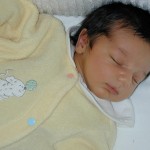
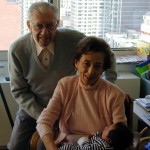
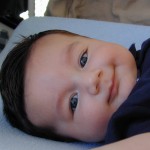
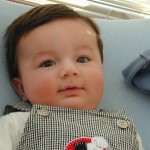
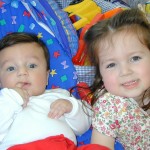
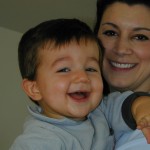
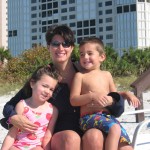

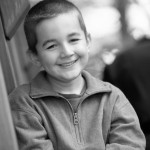
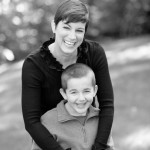
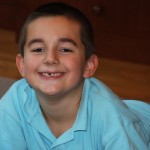
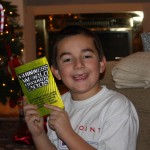
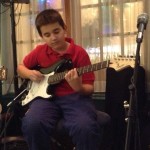
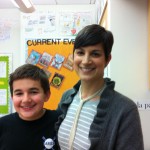
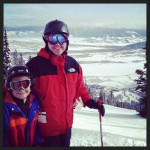




































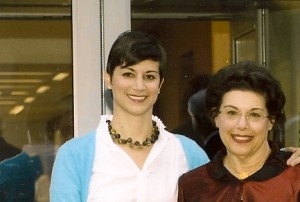
 Link to Twitter
Link to Twitter